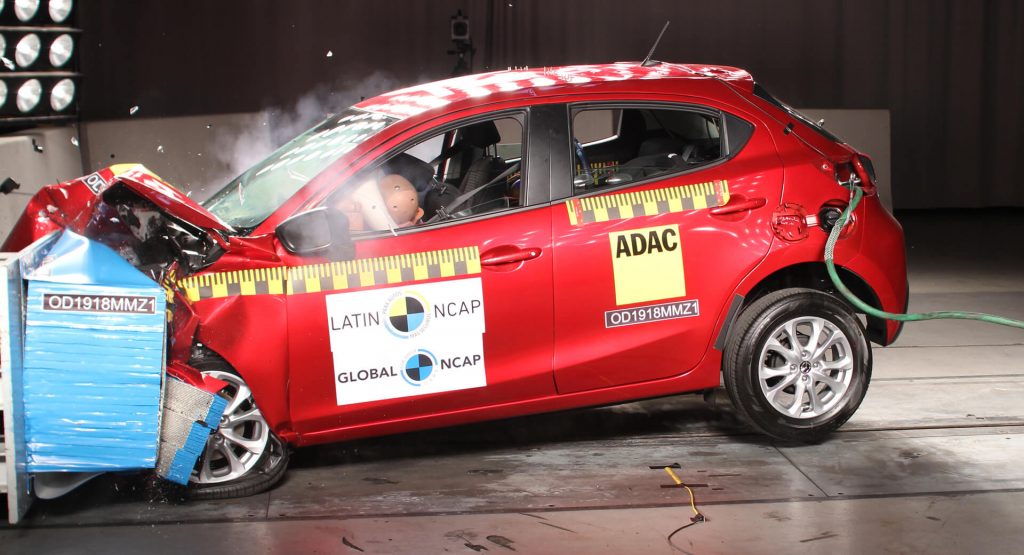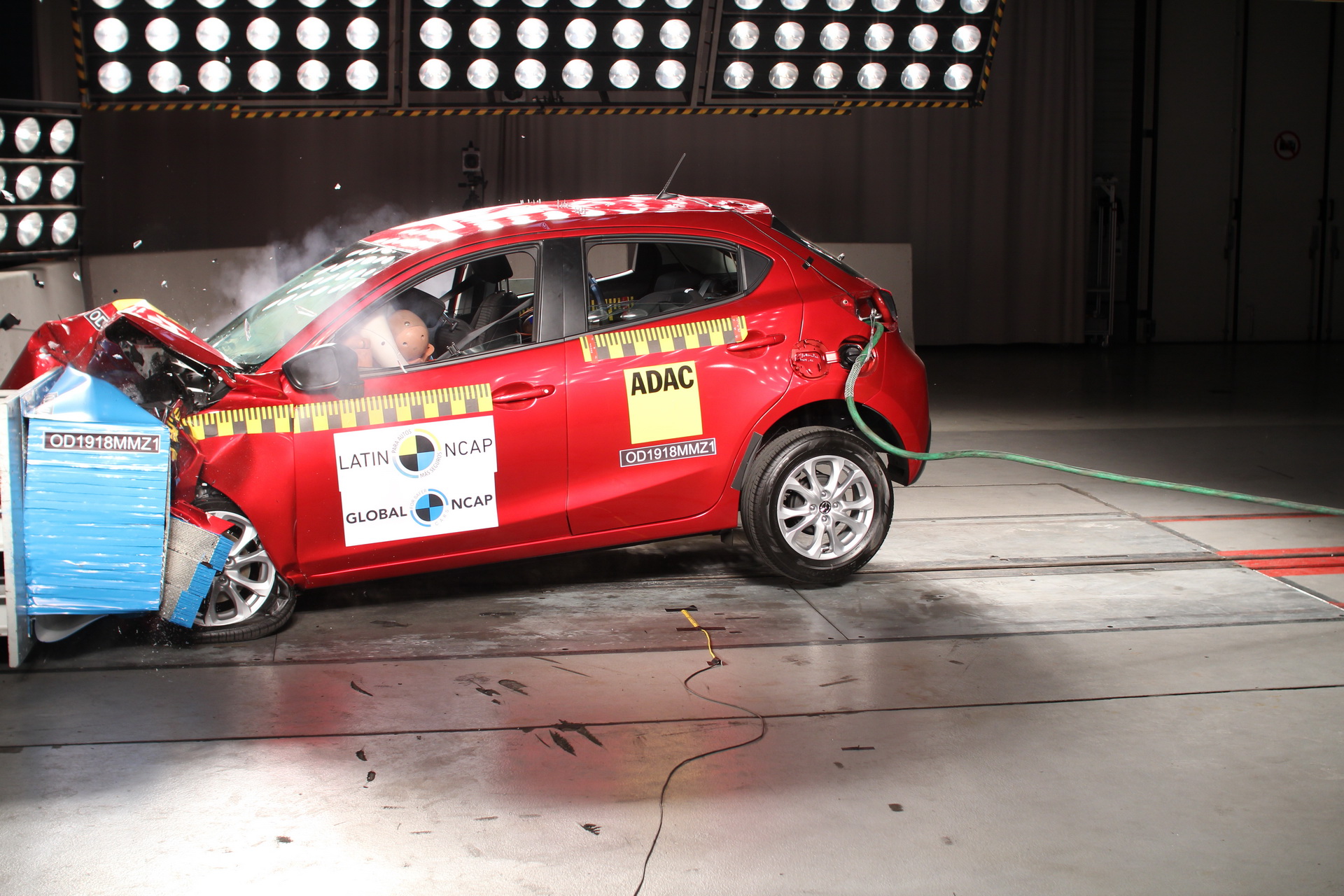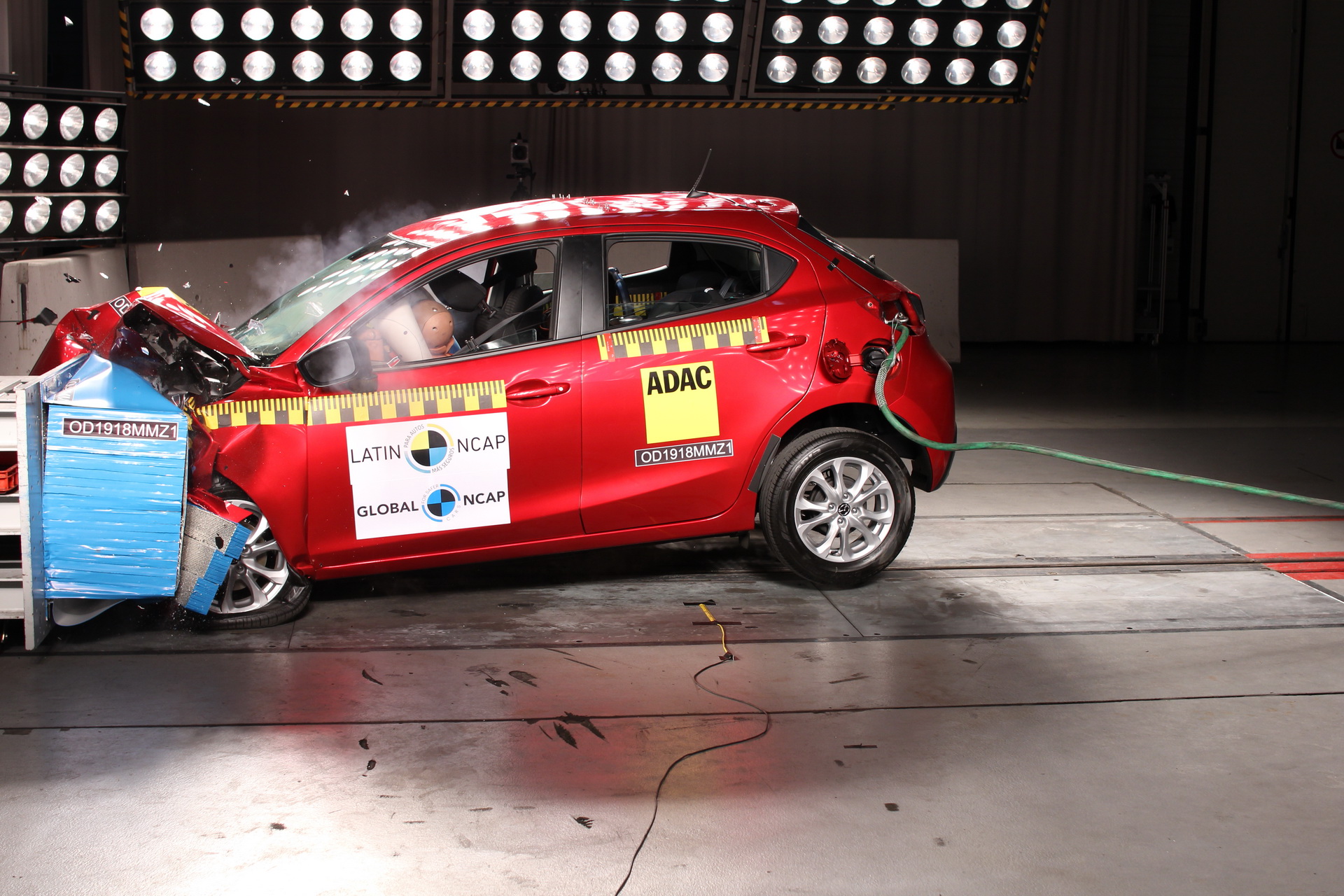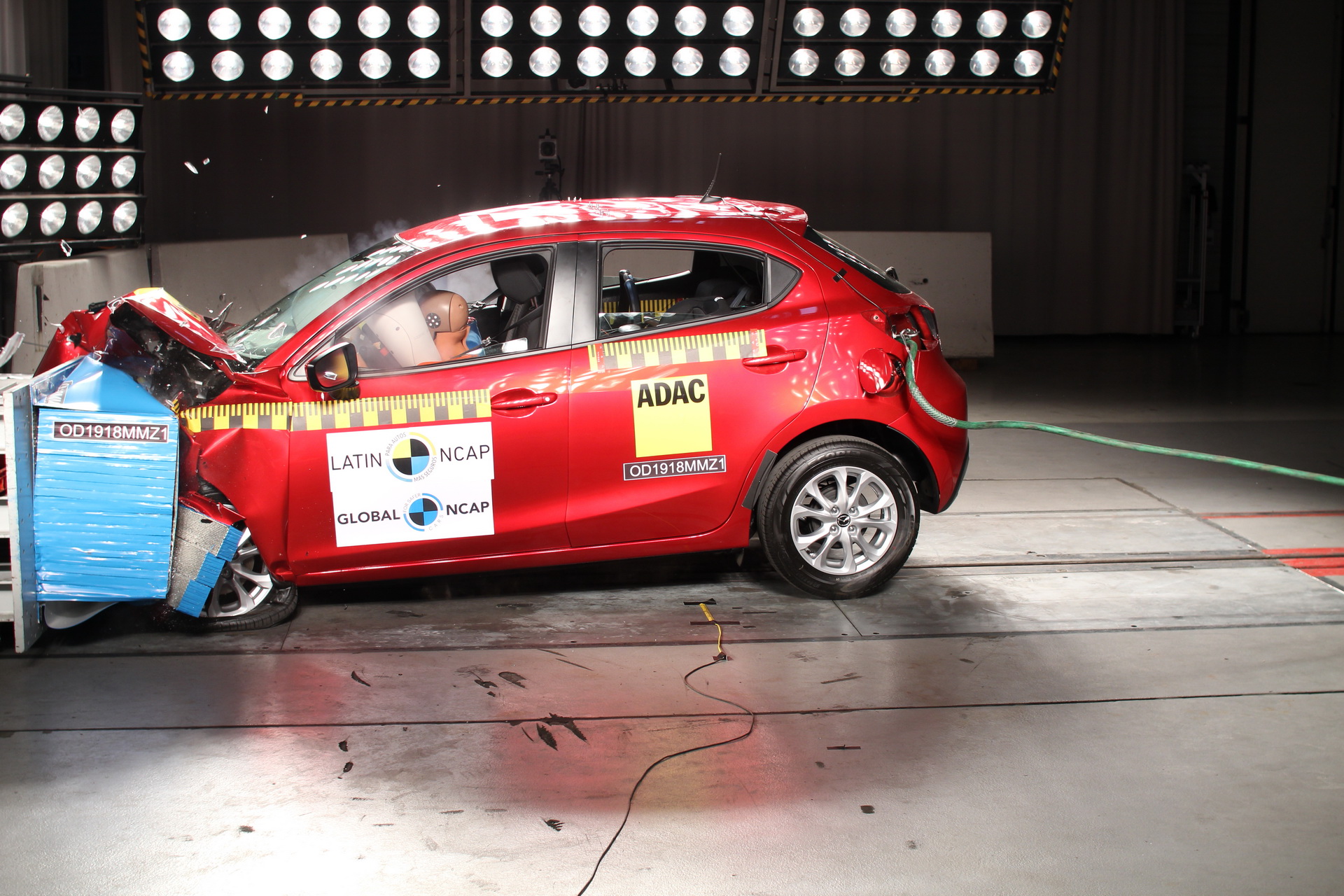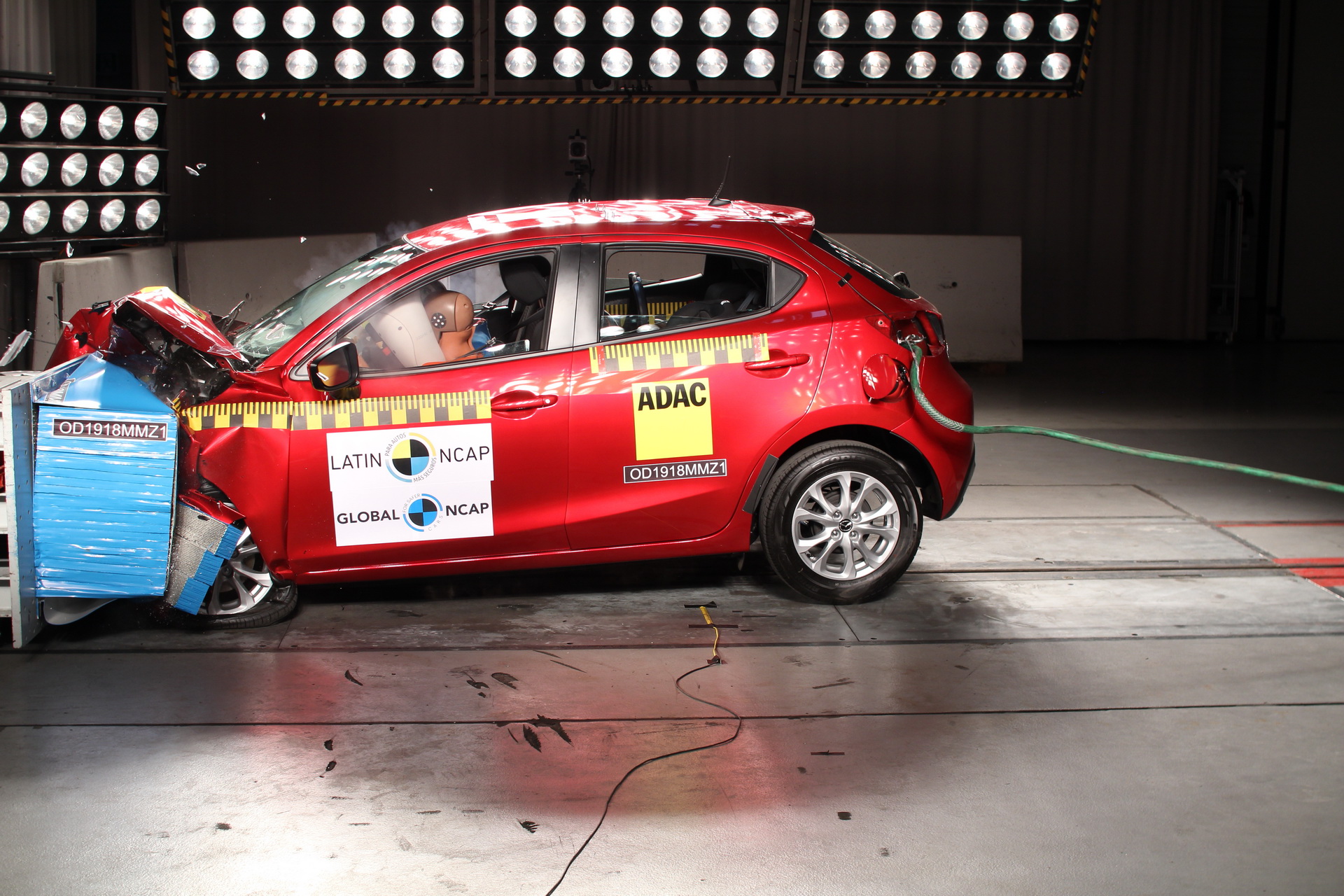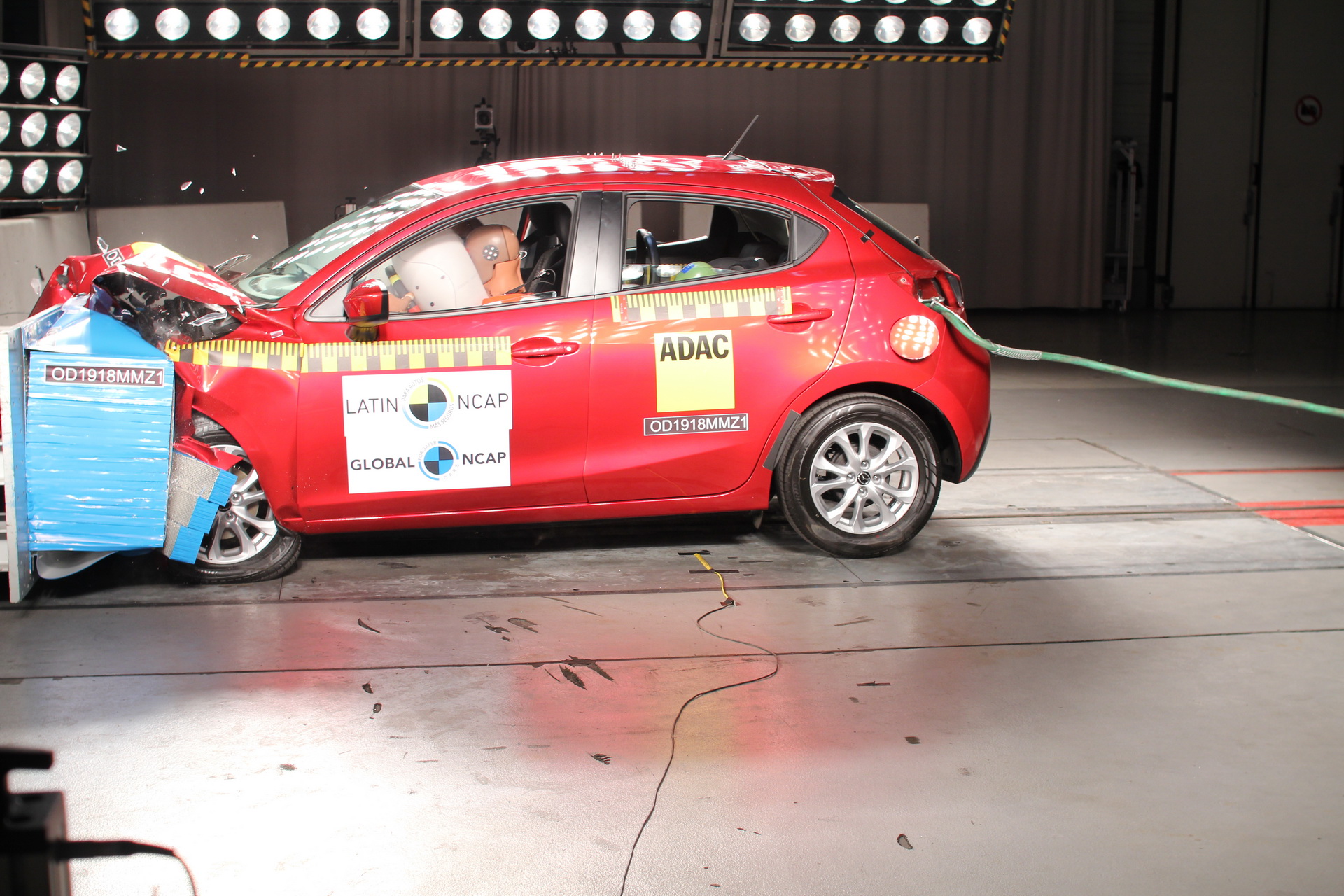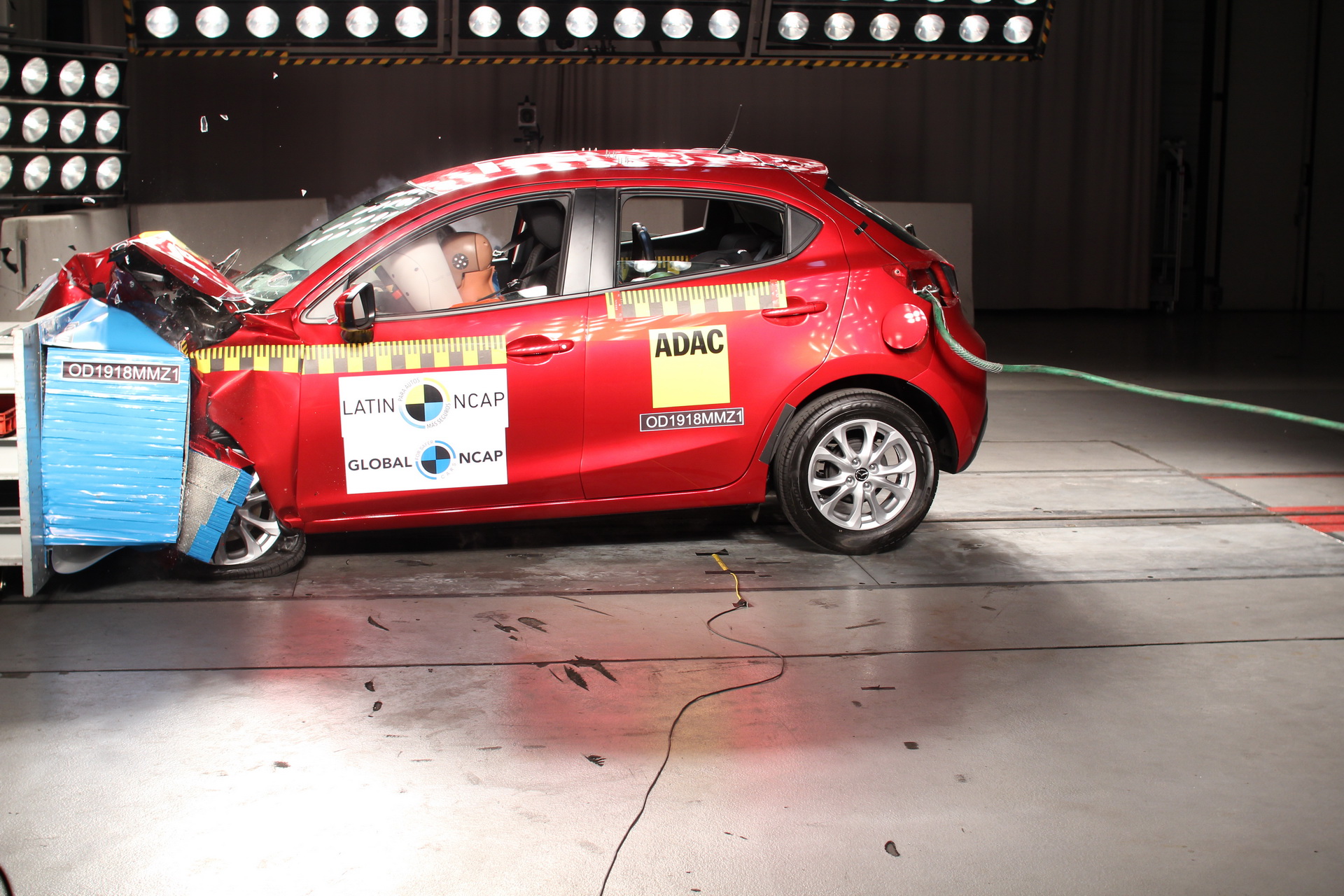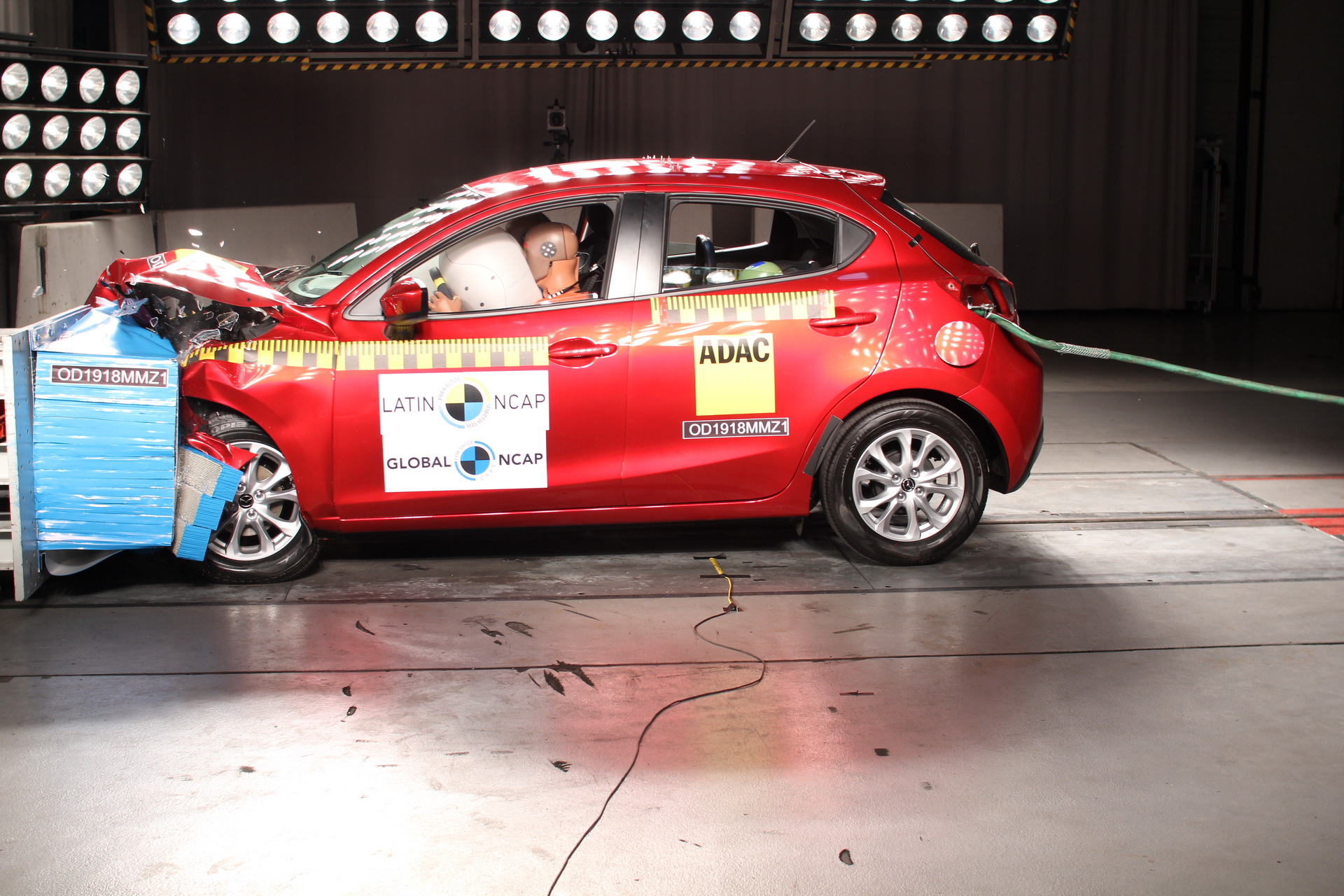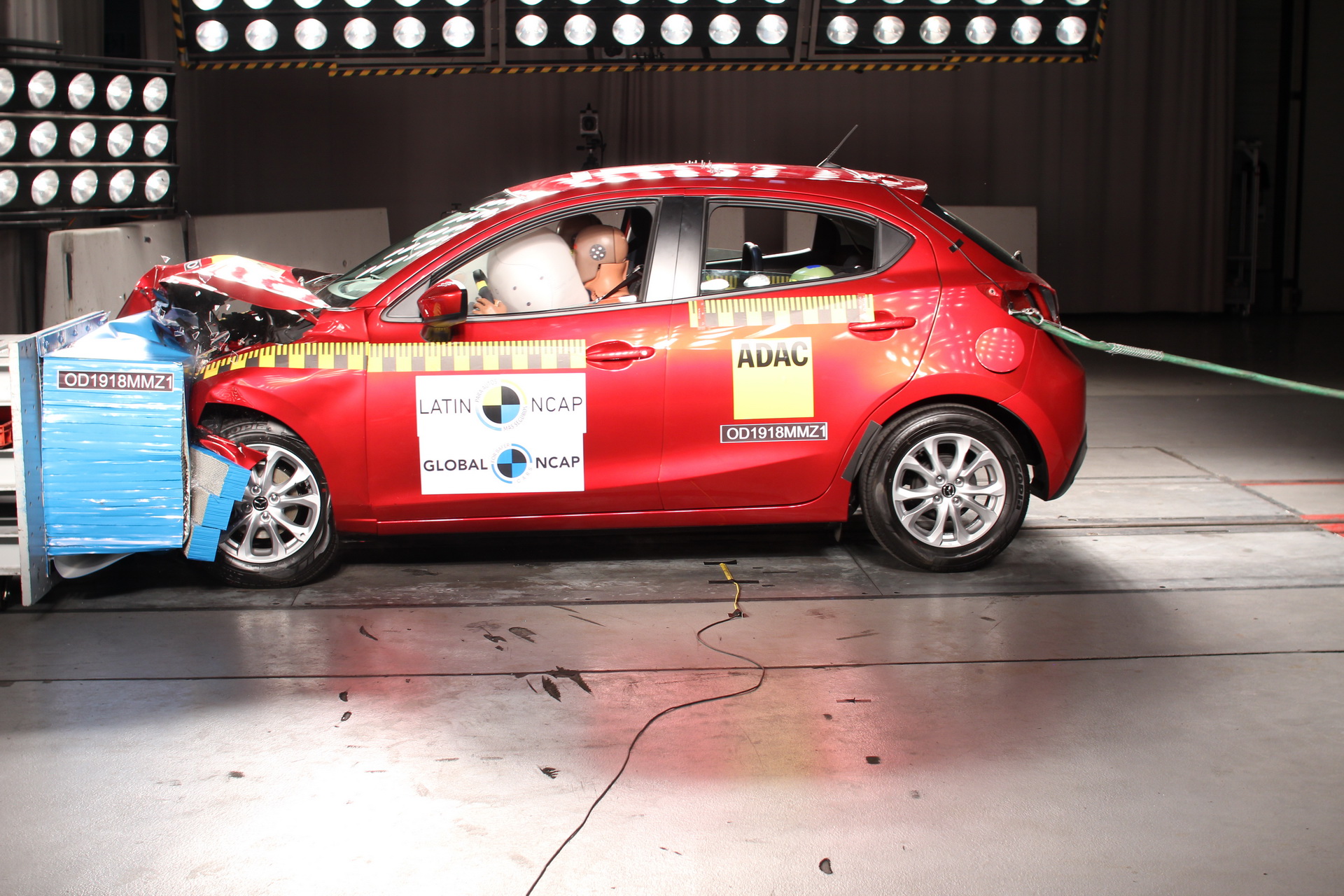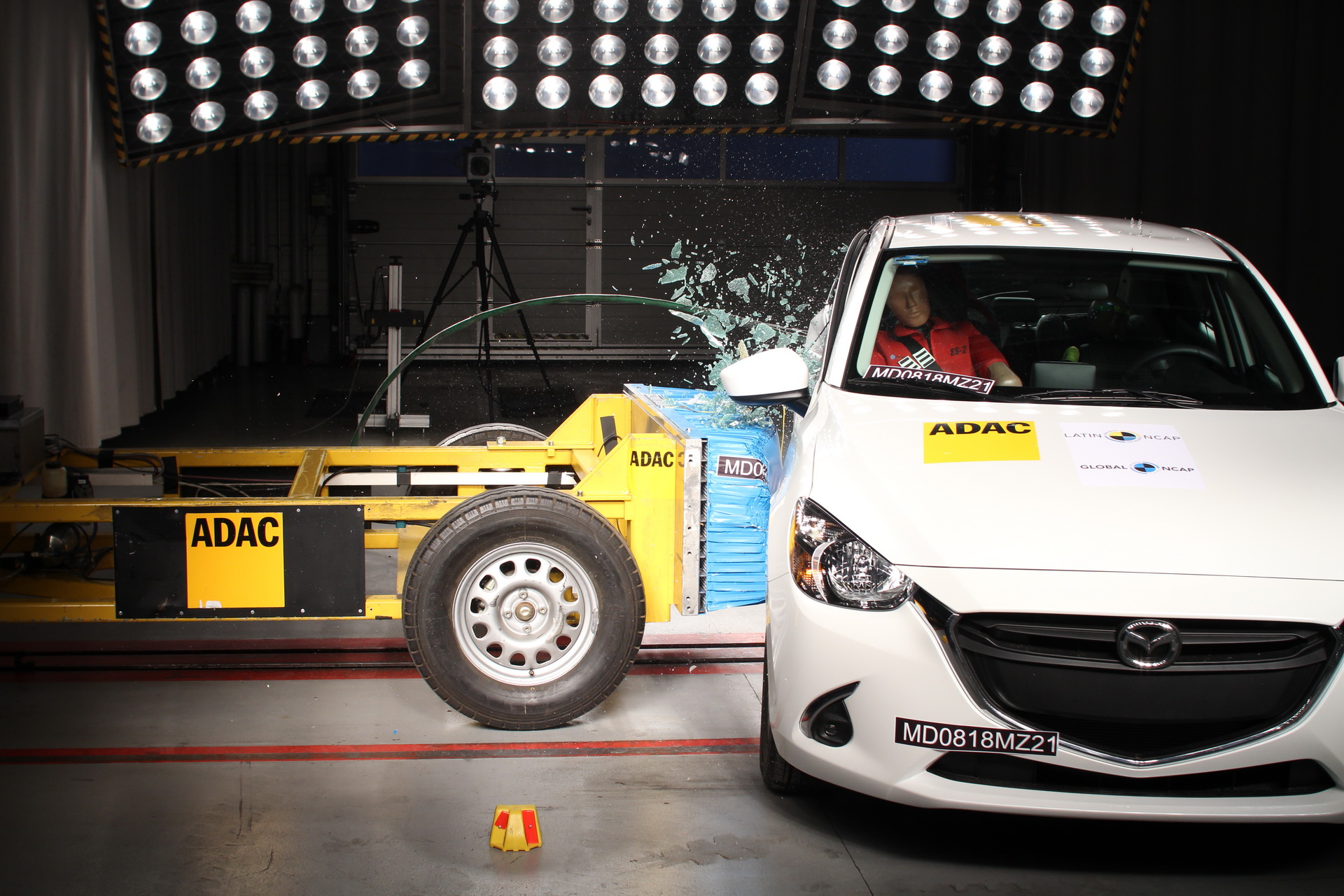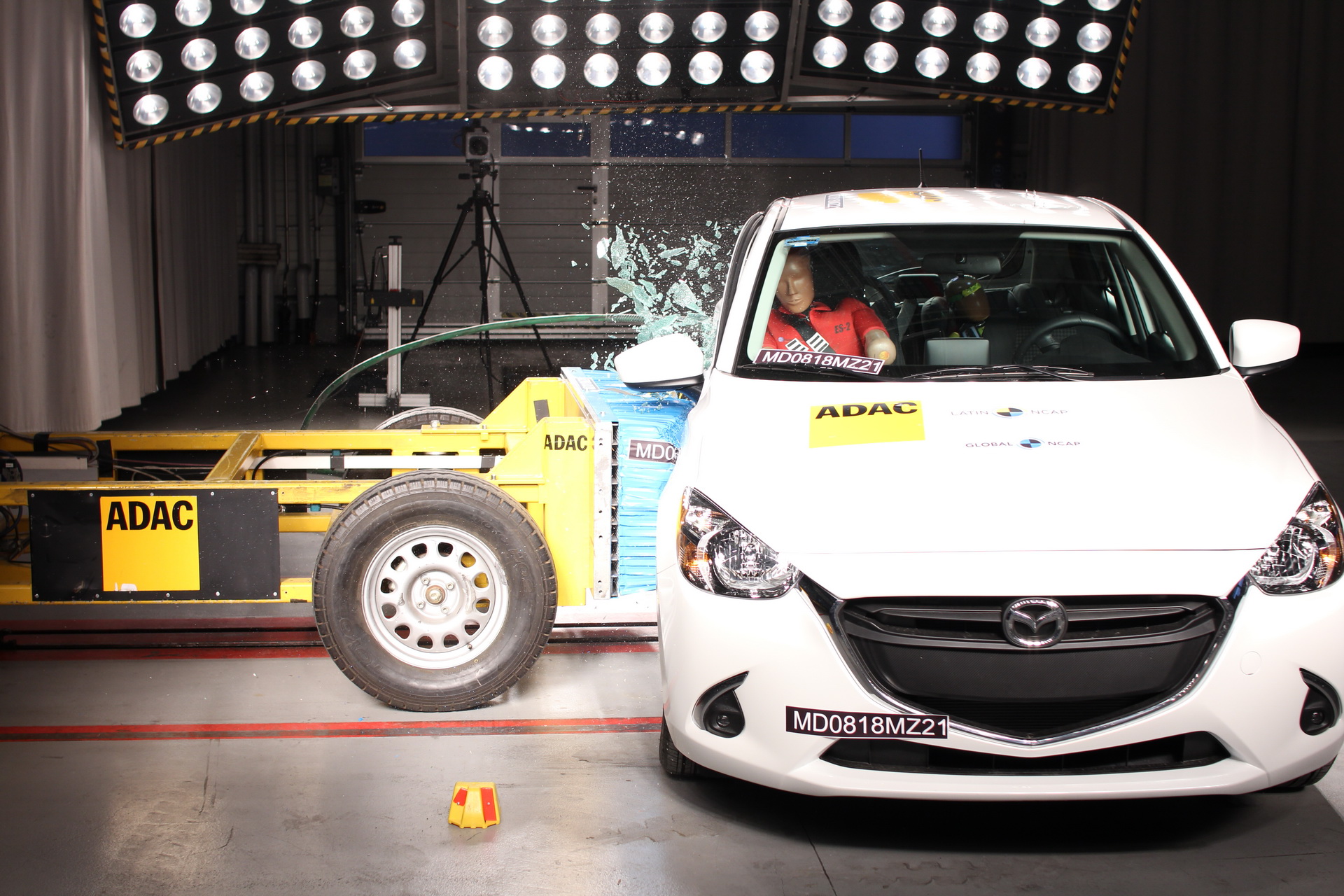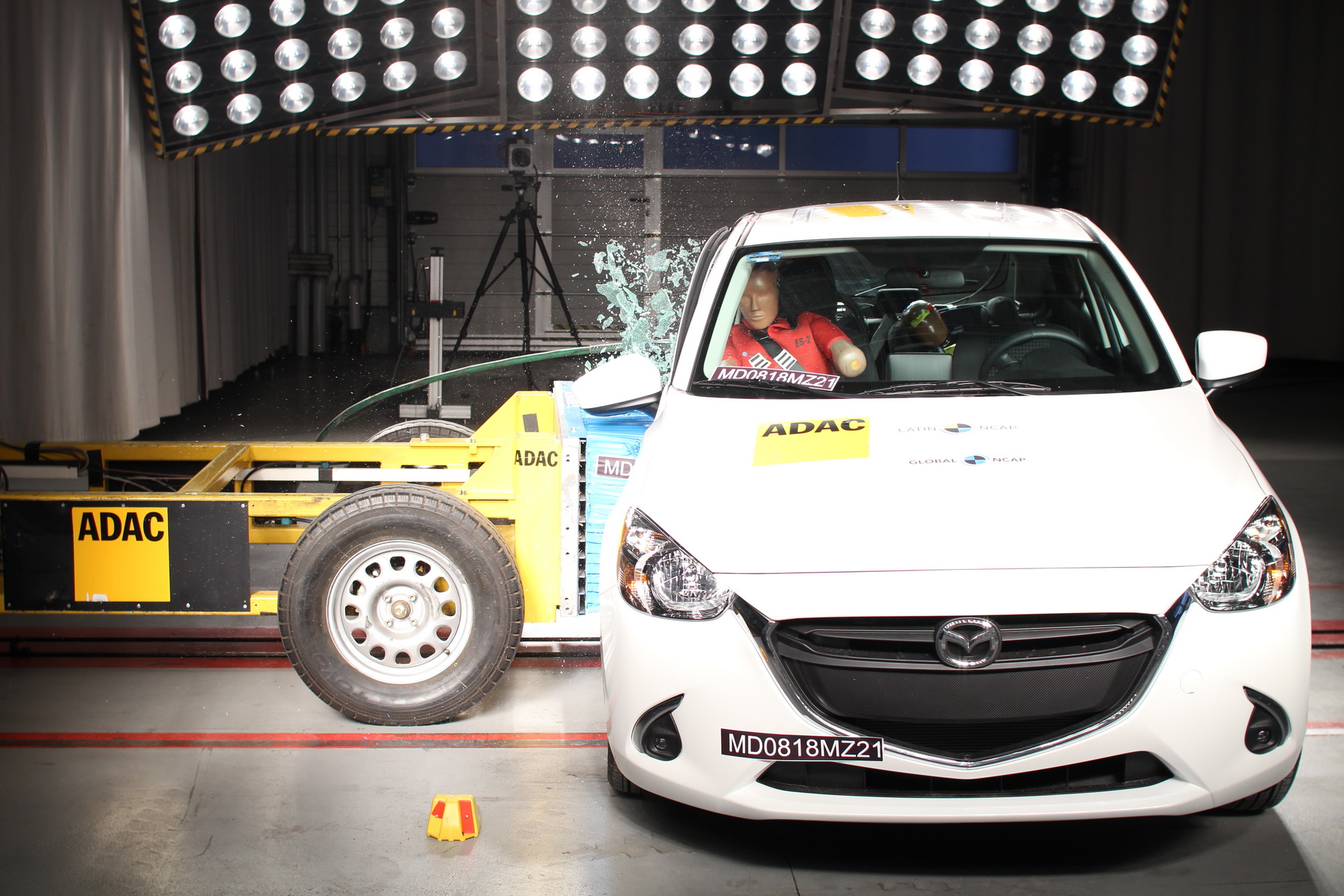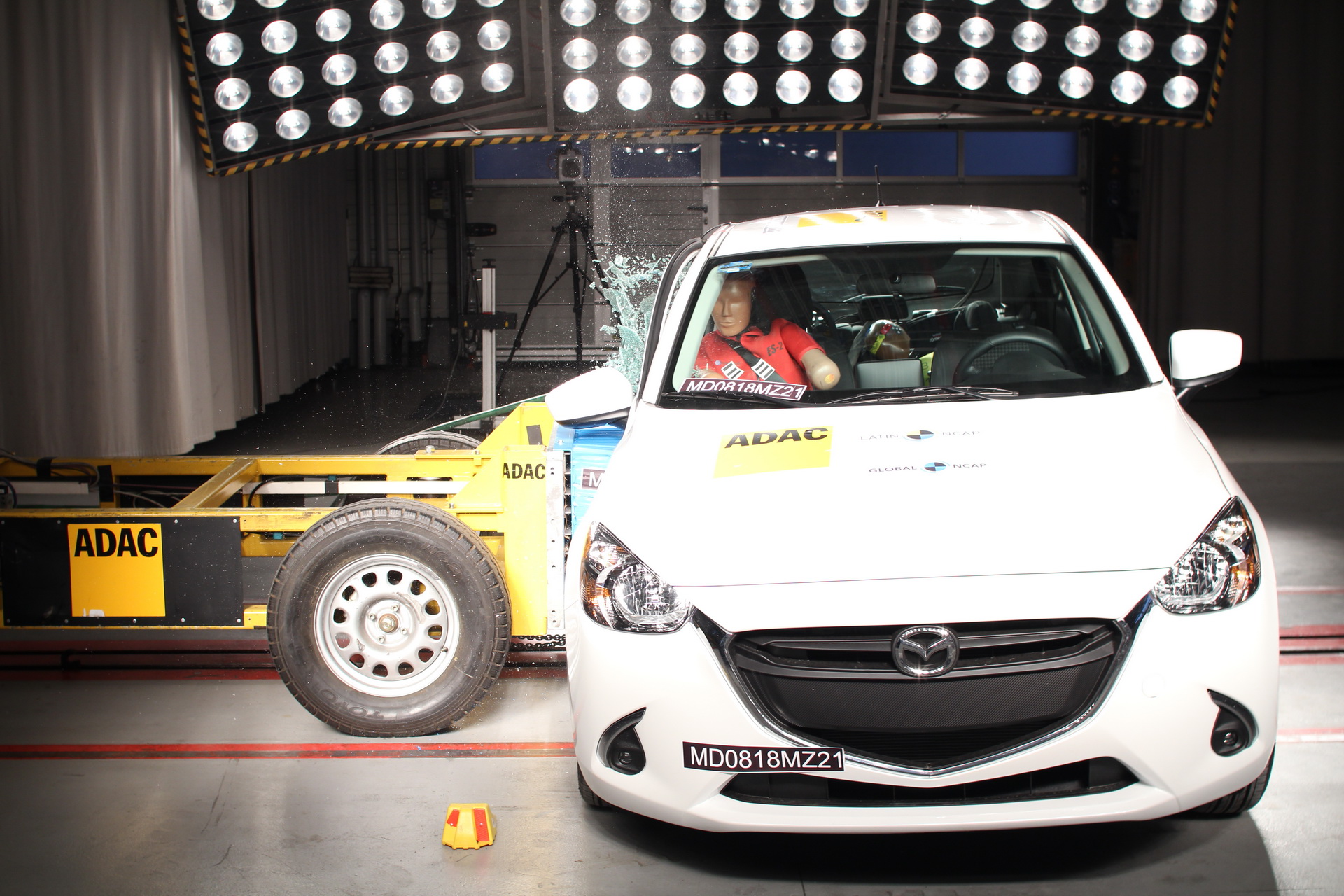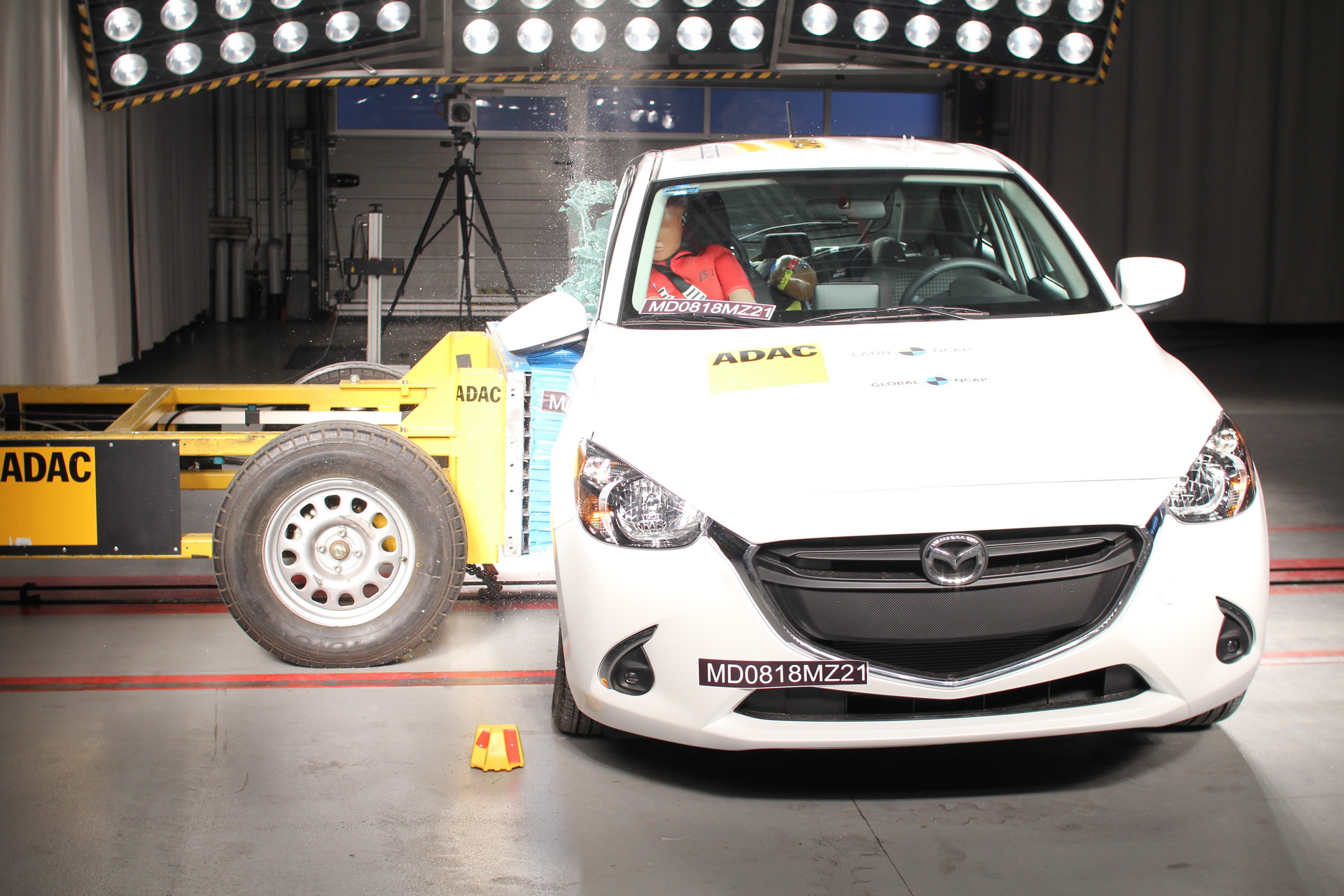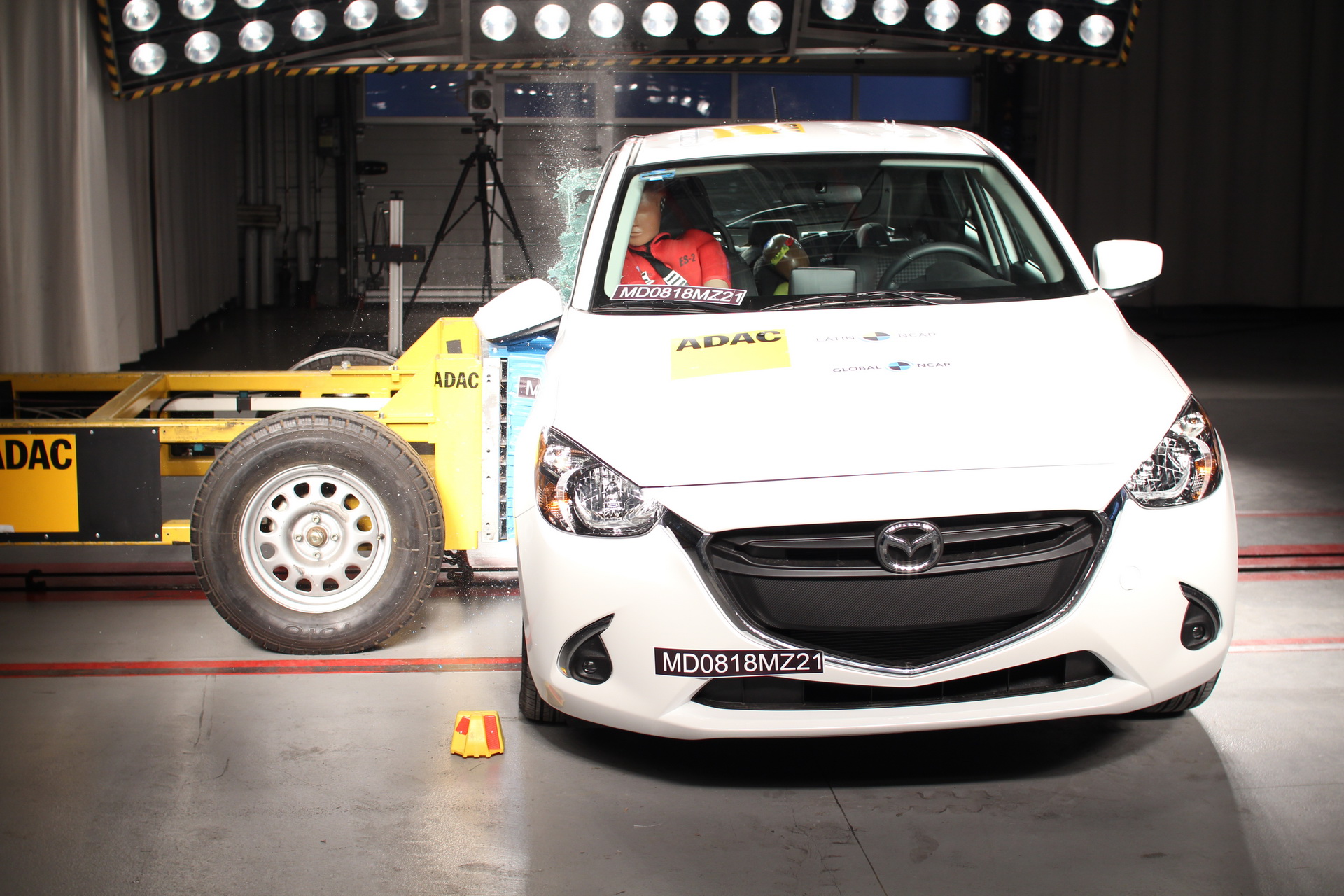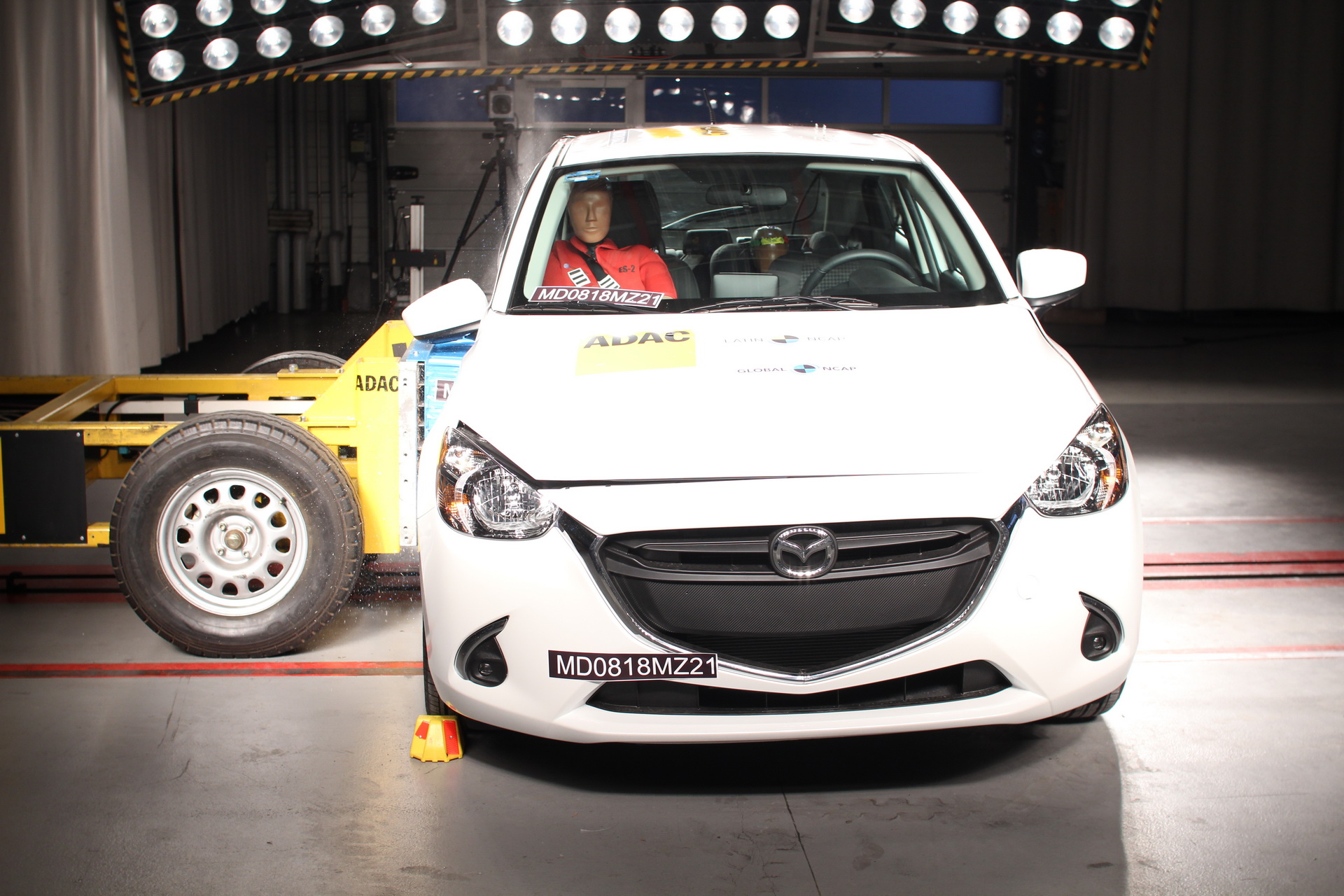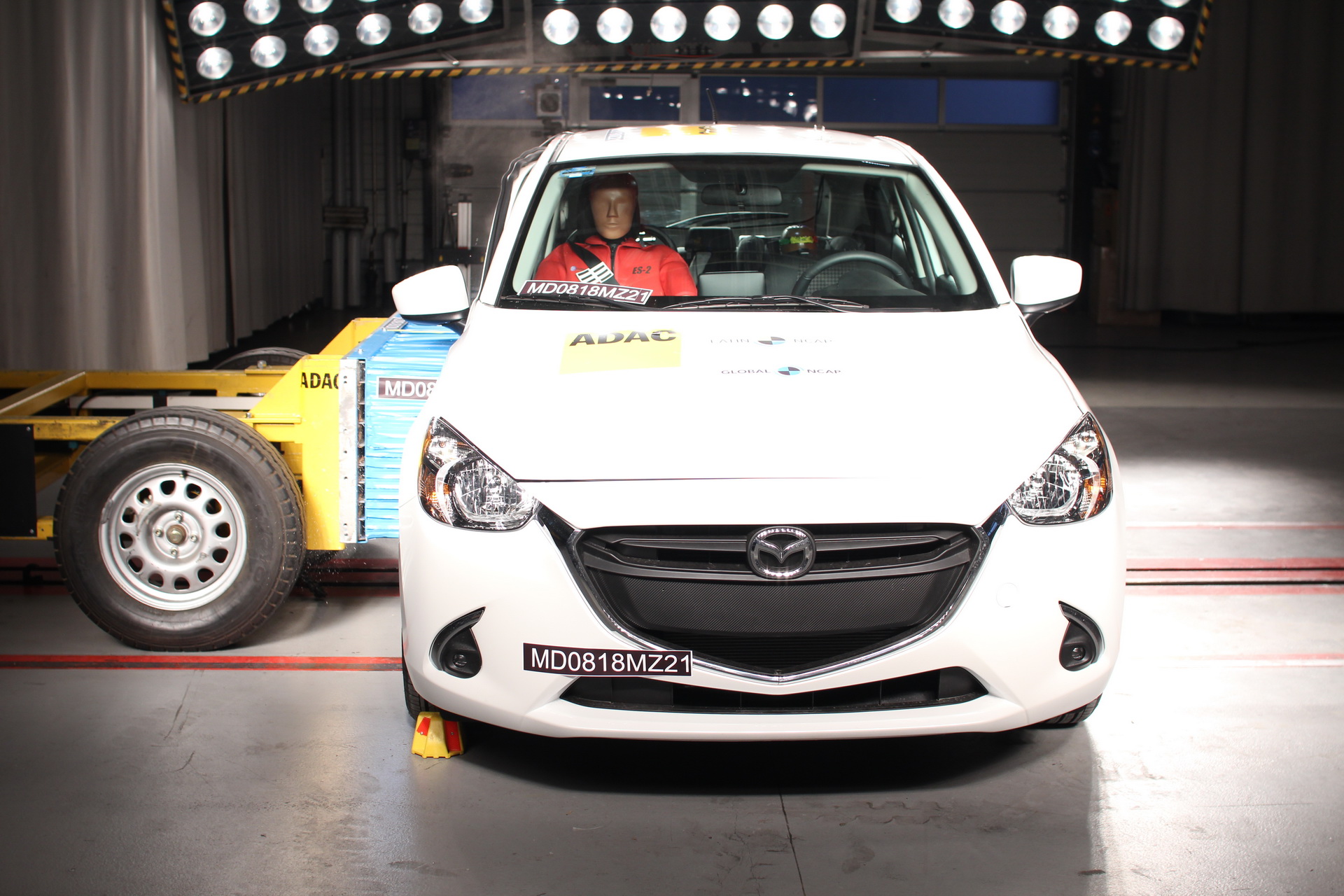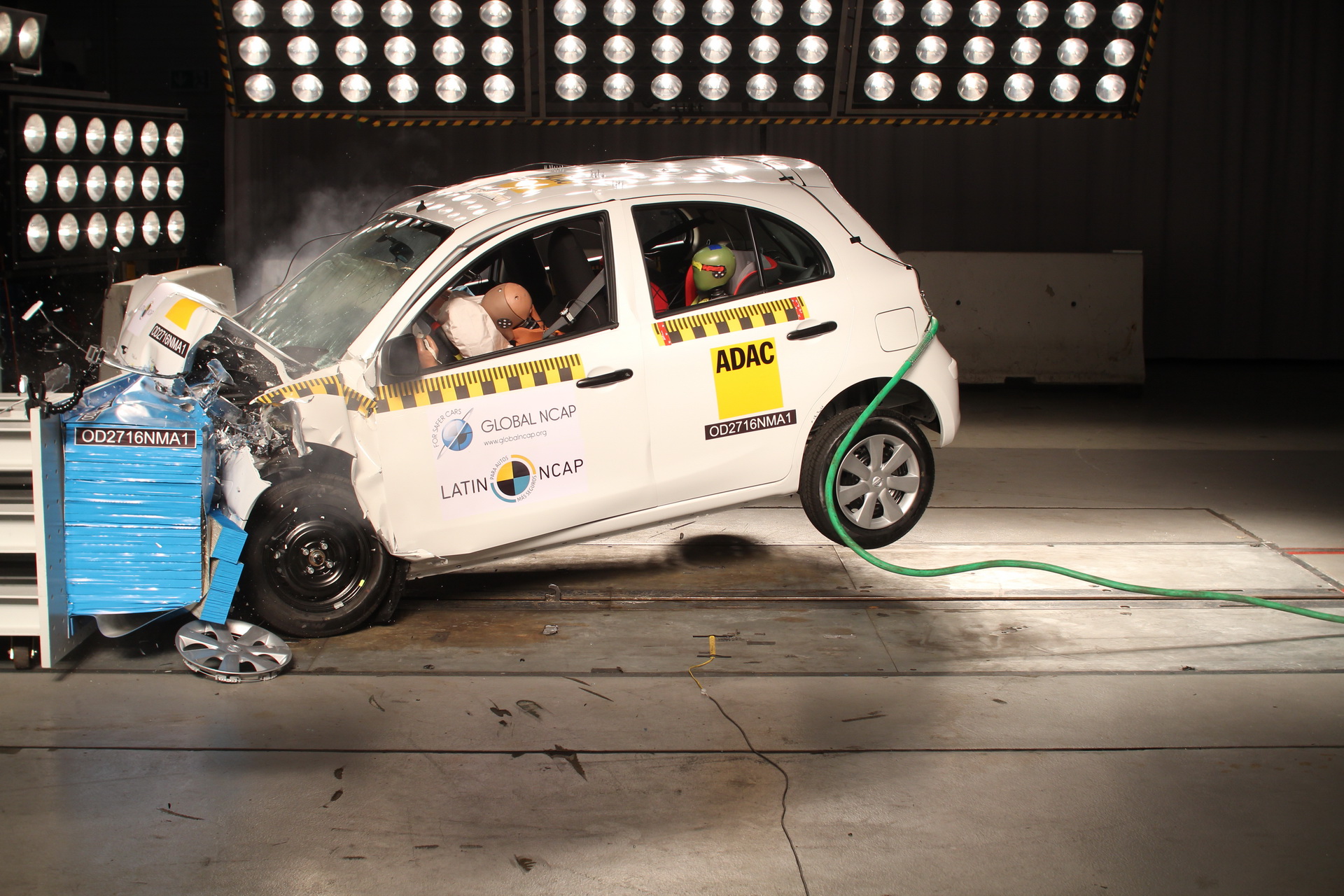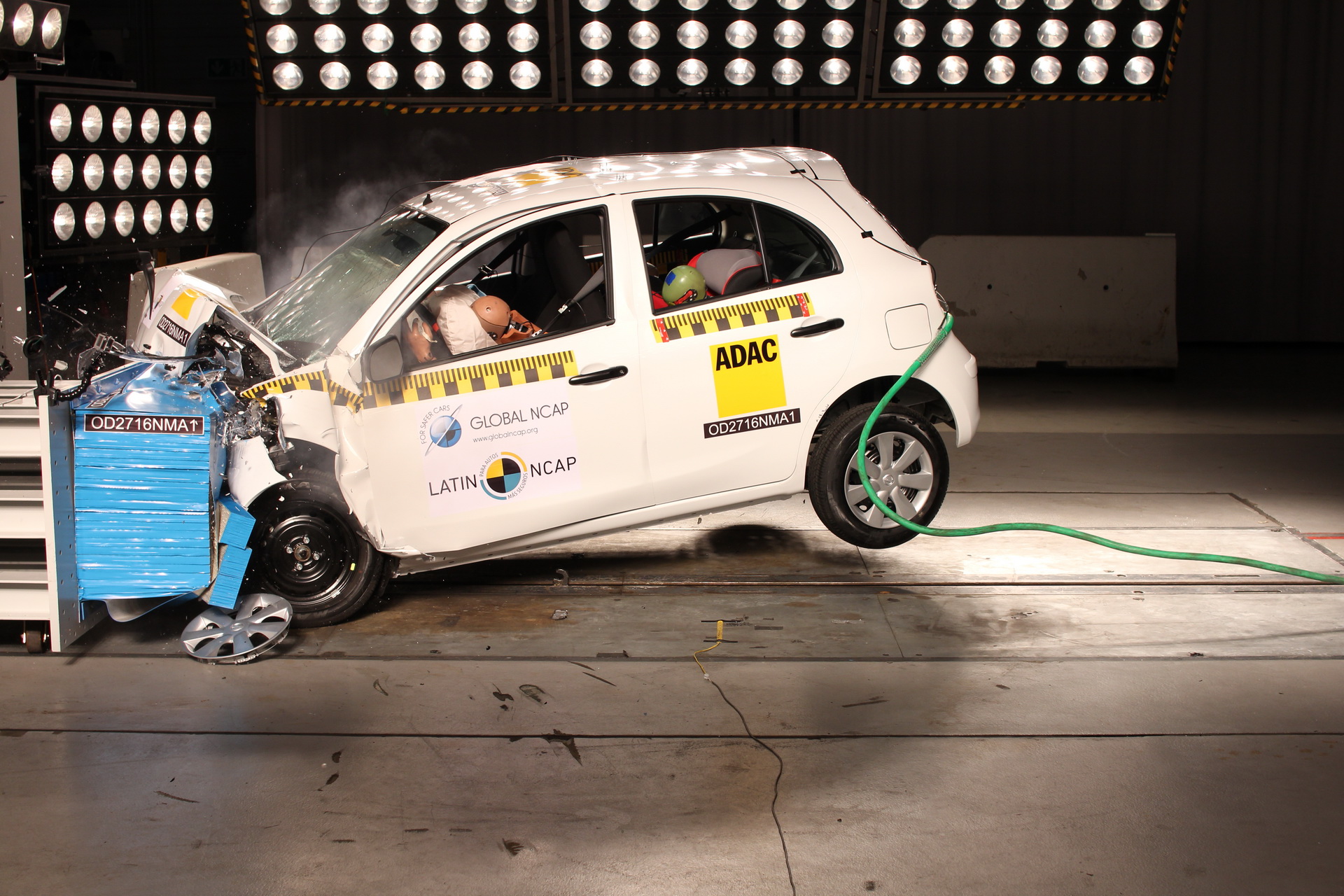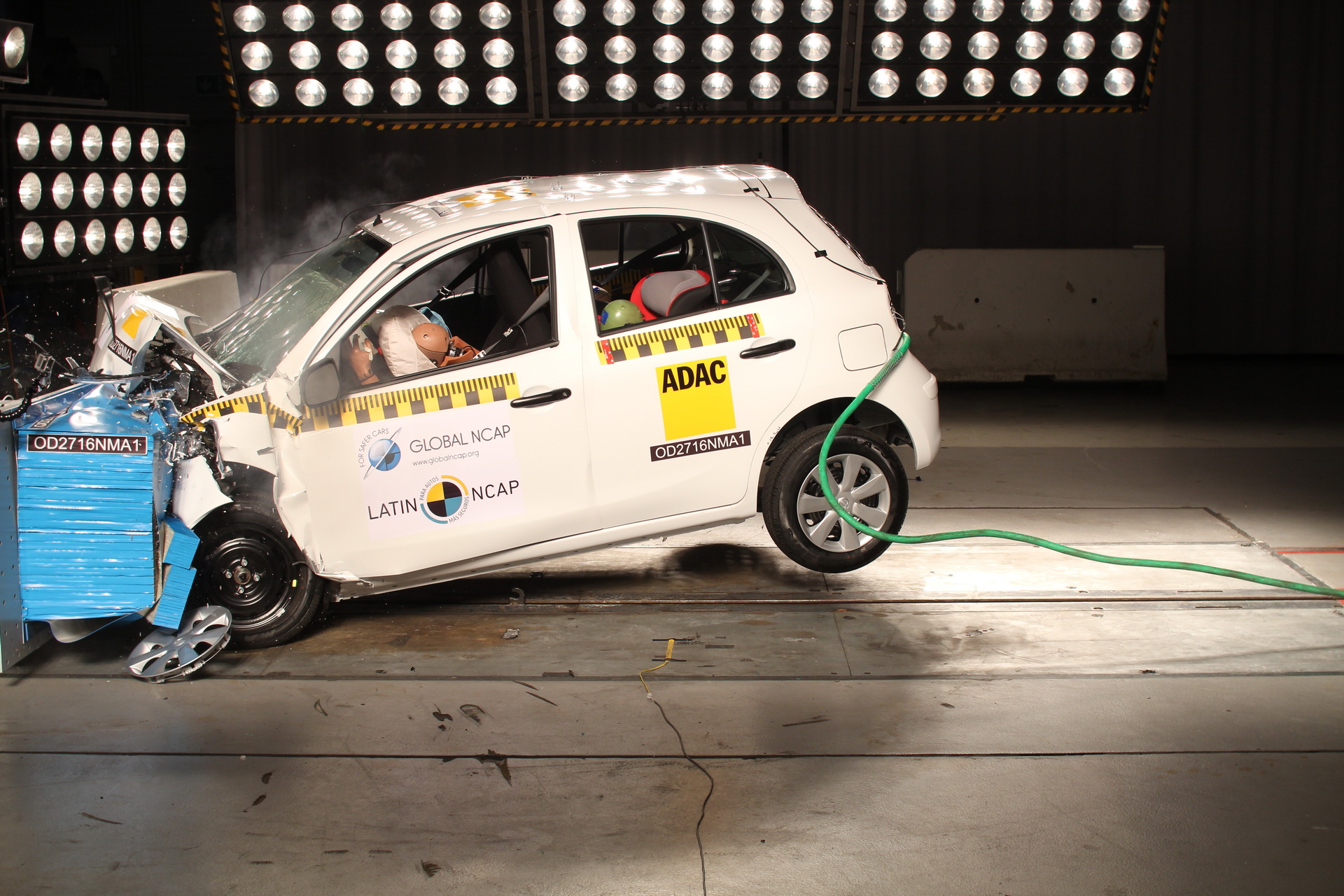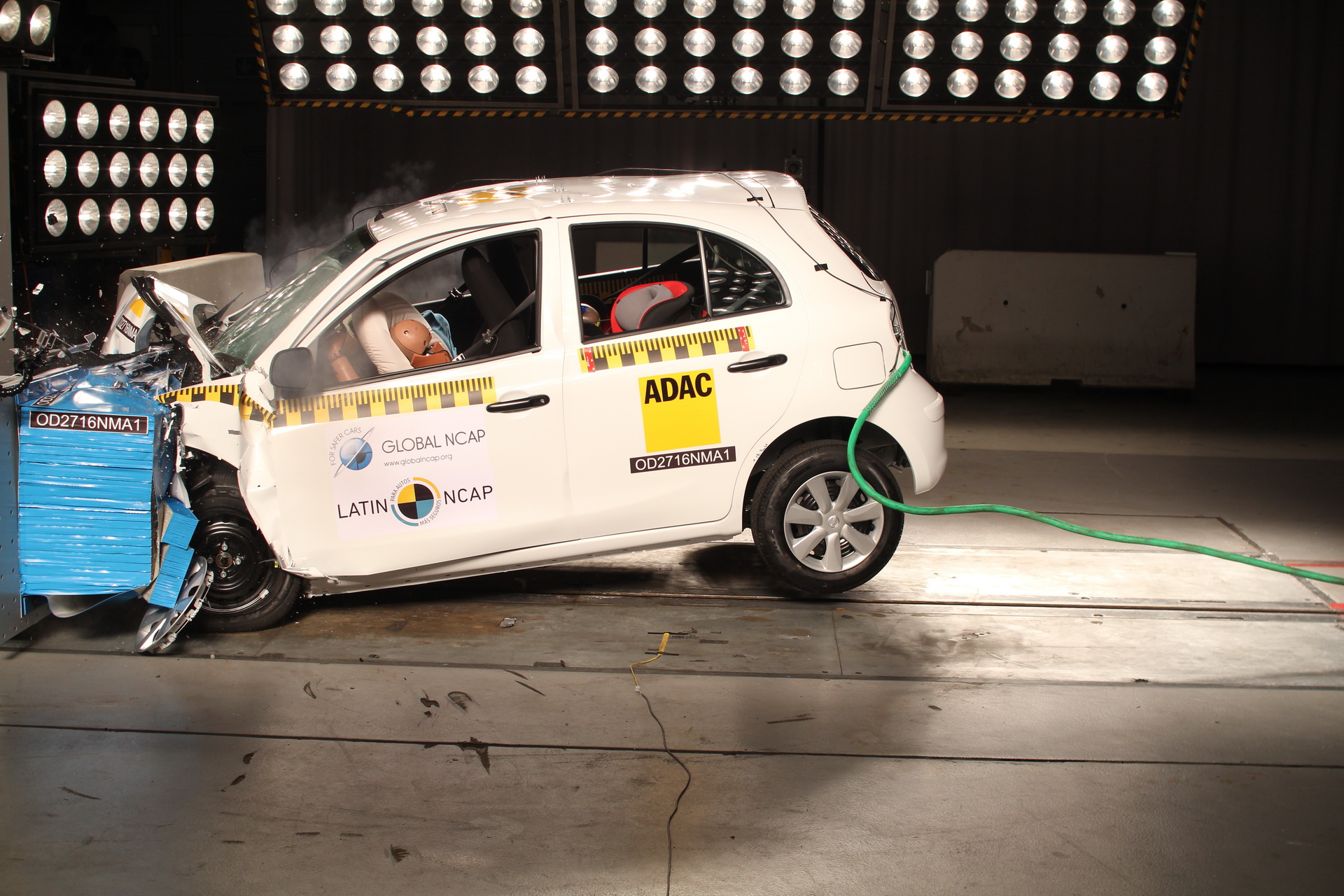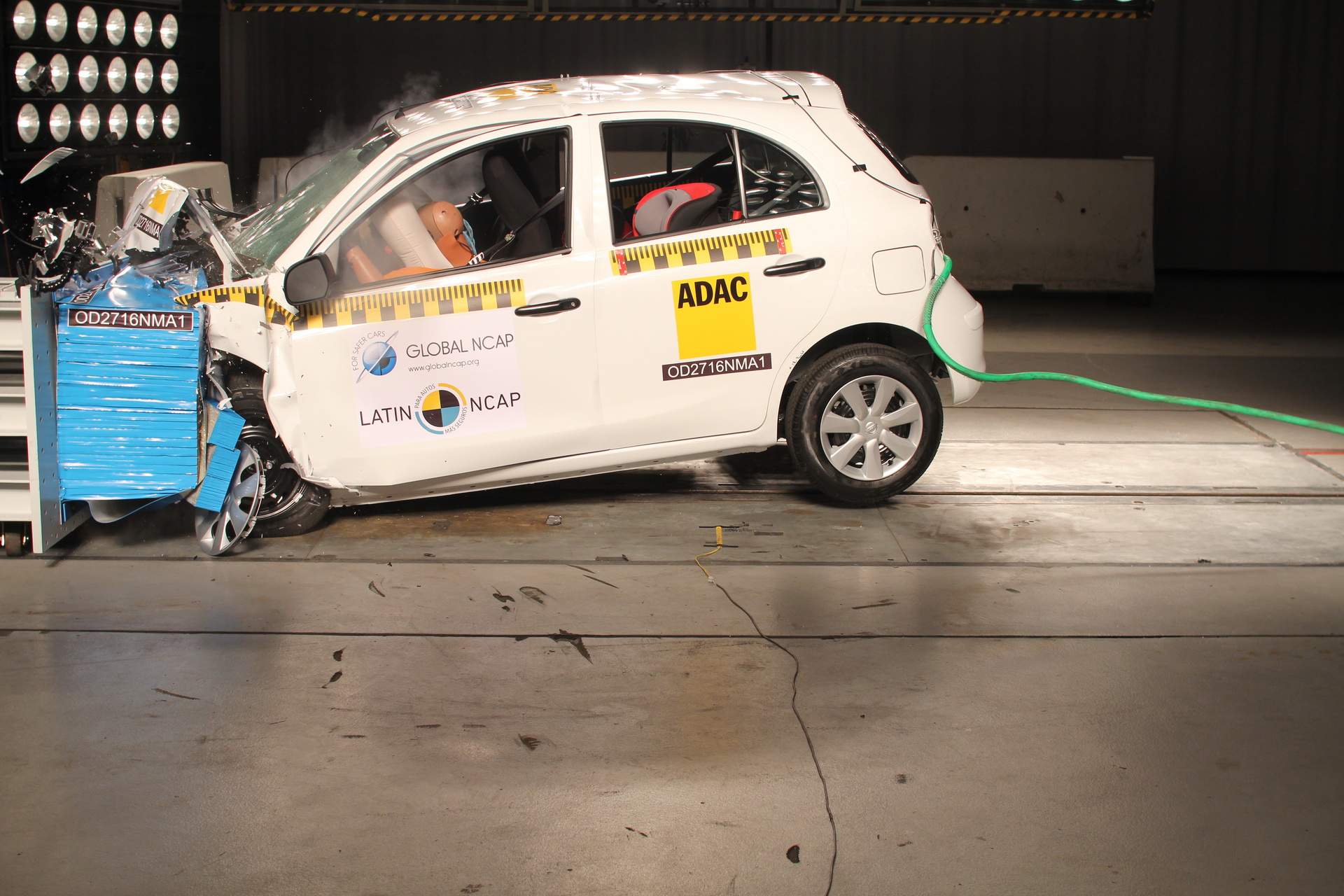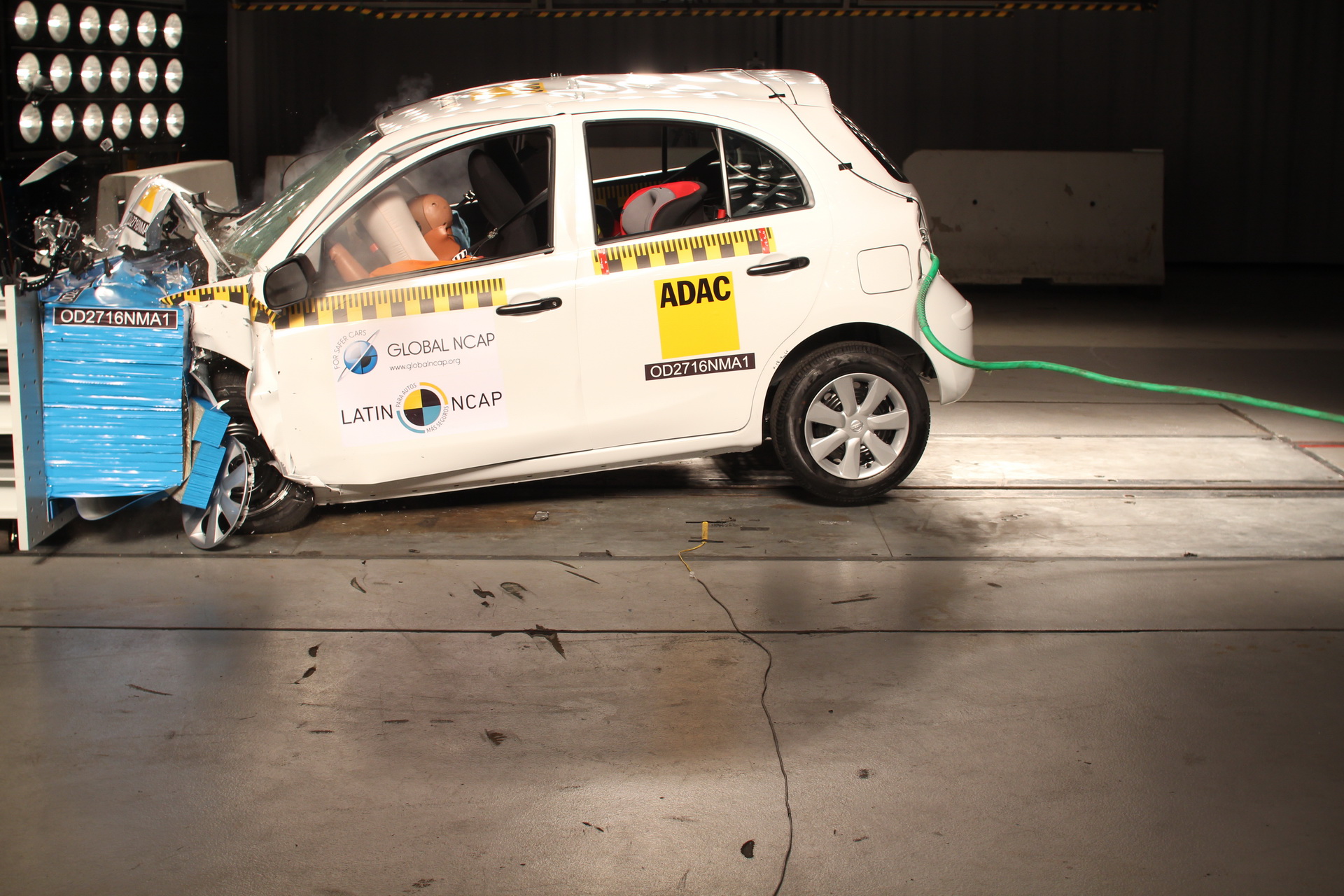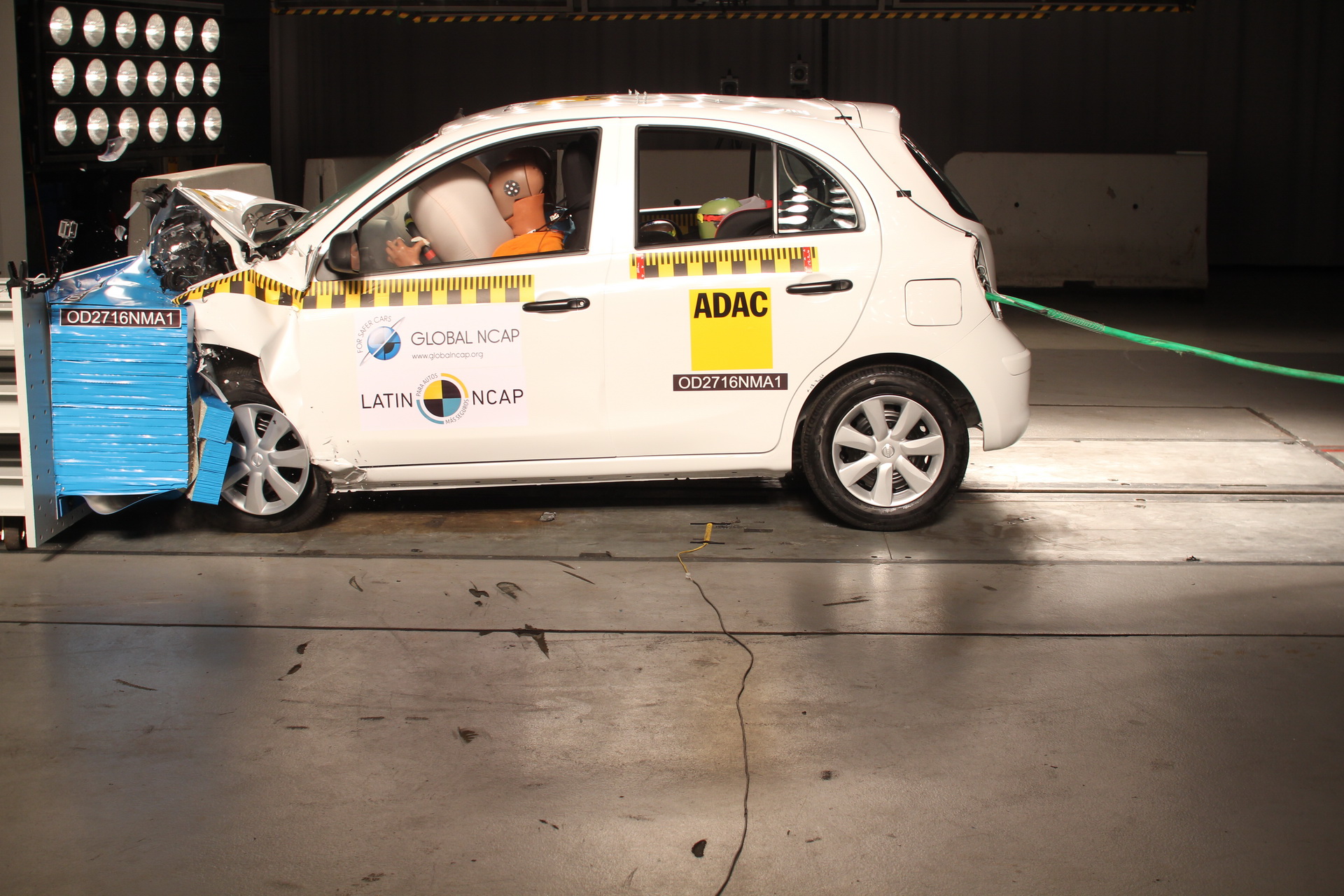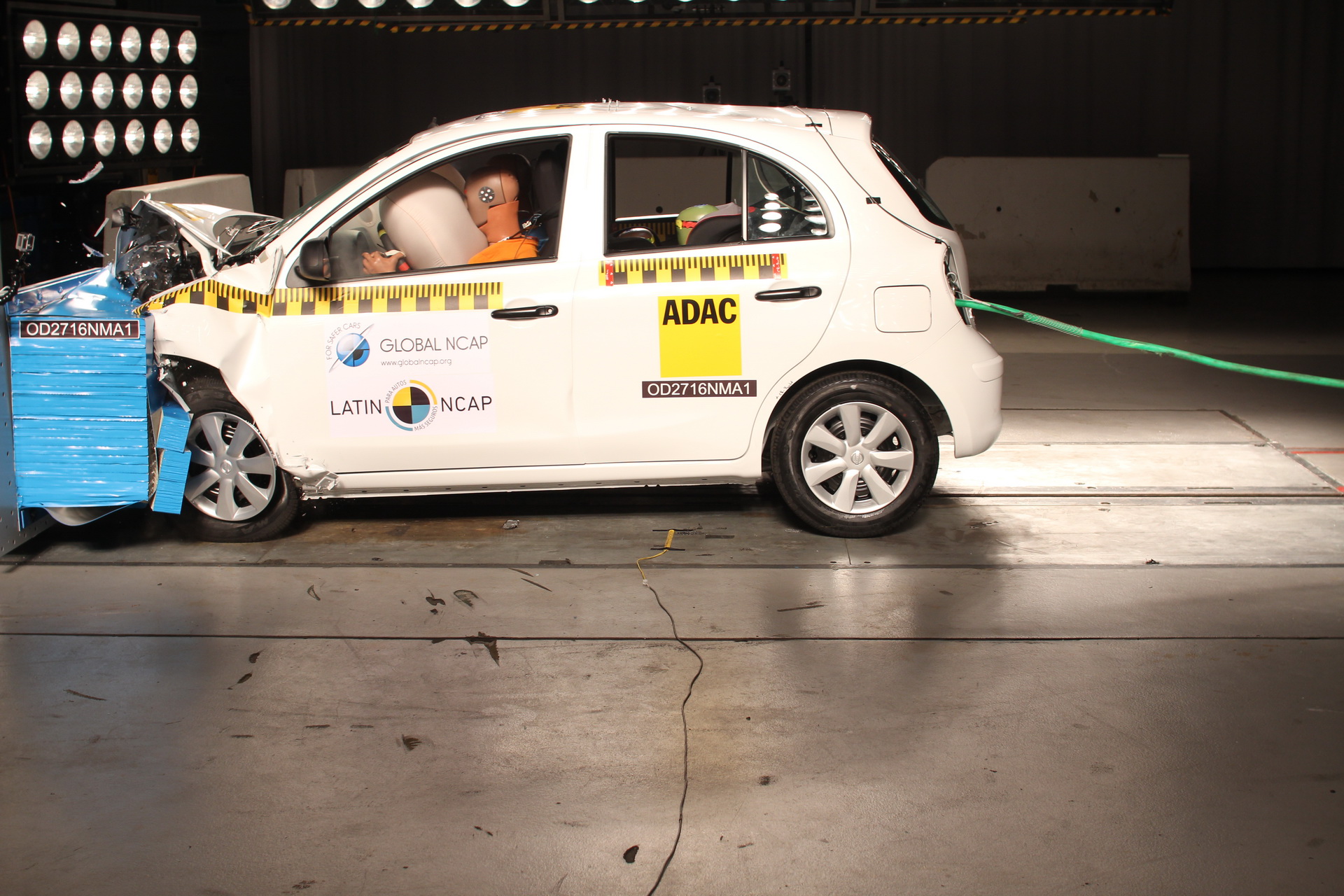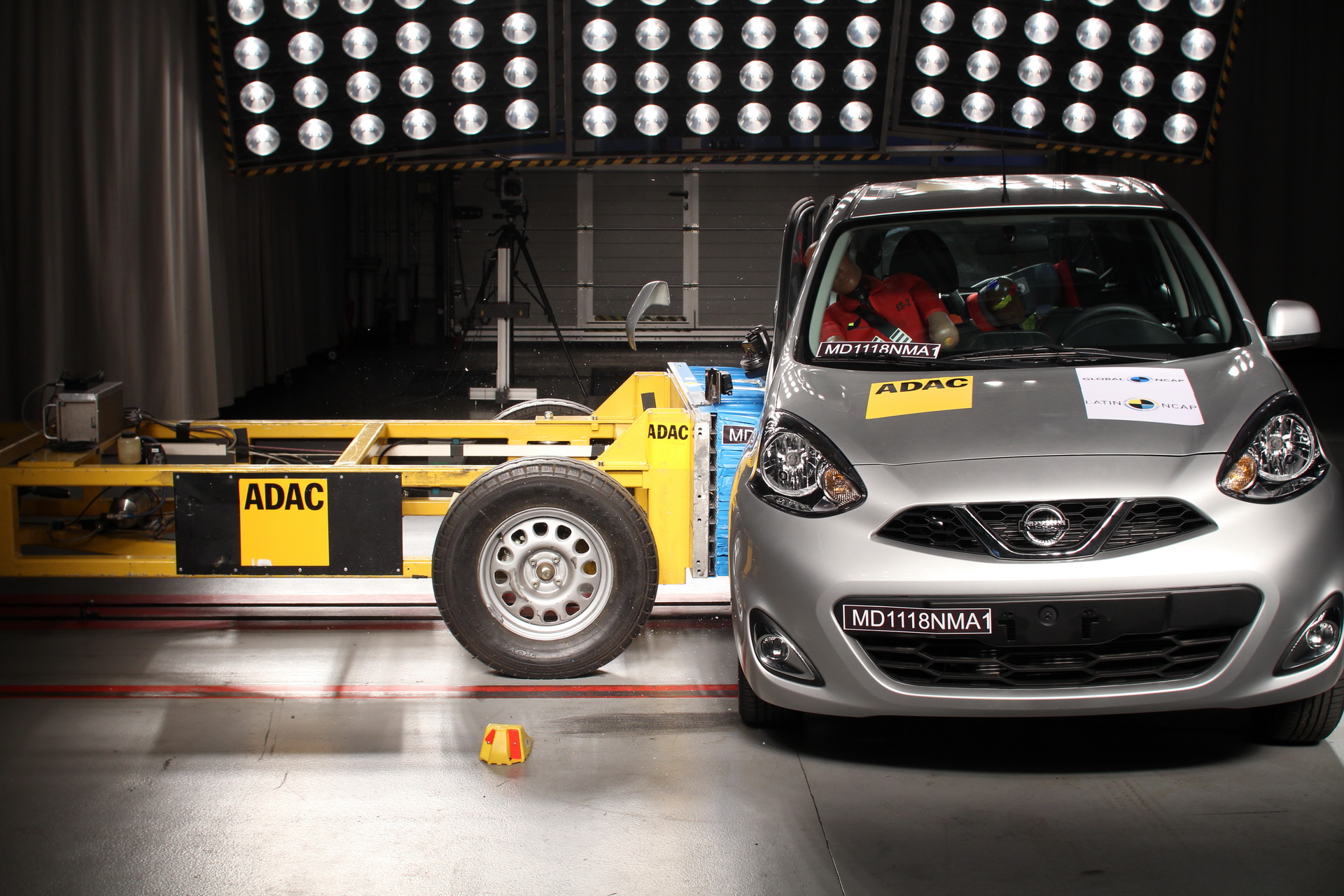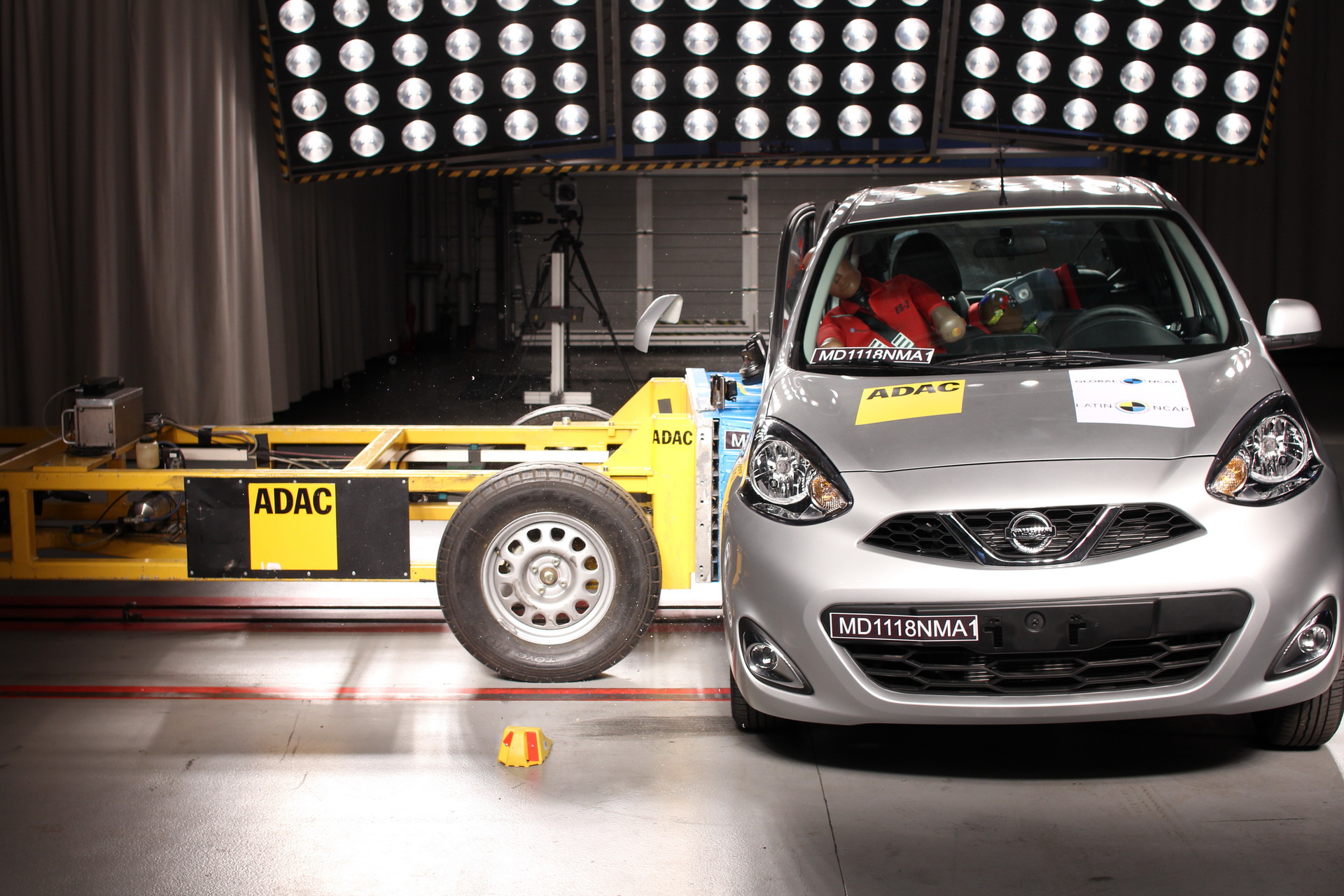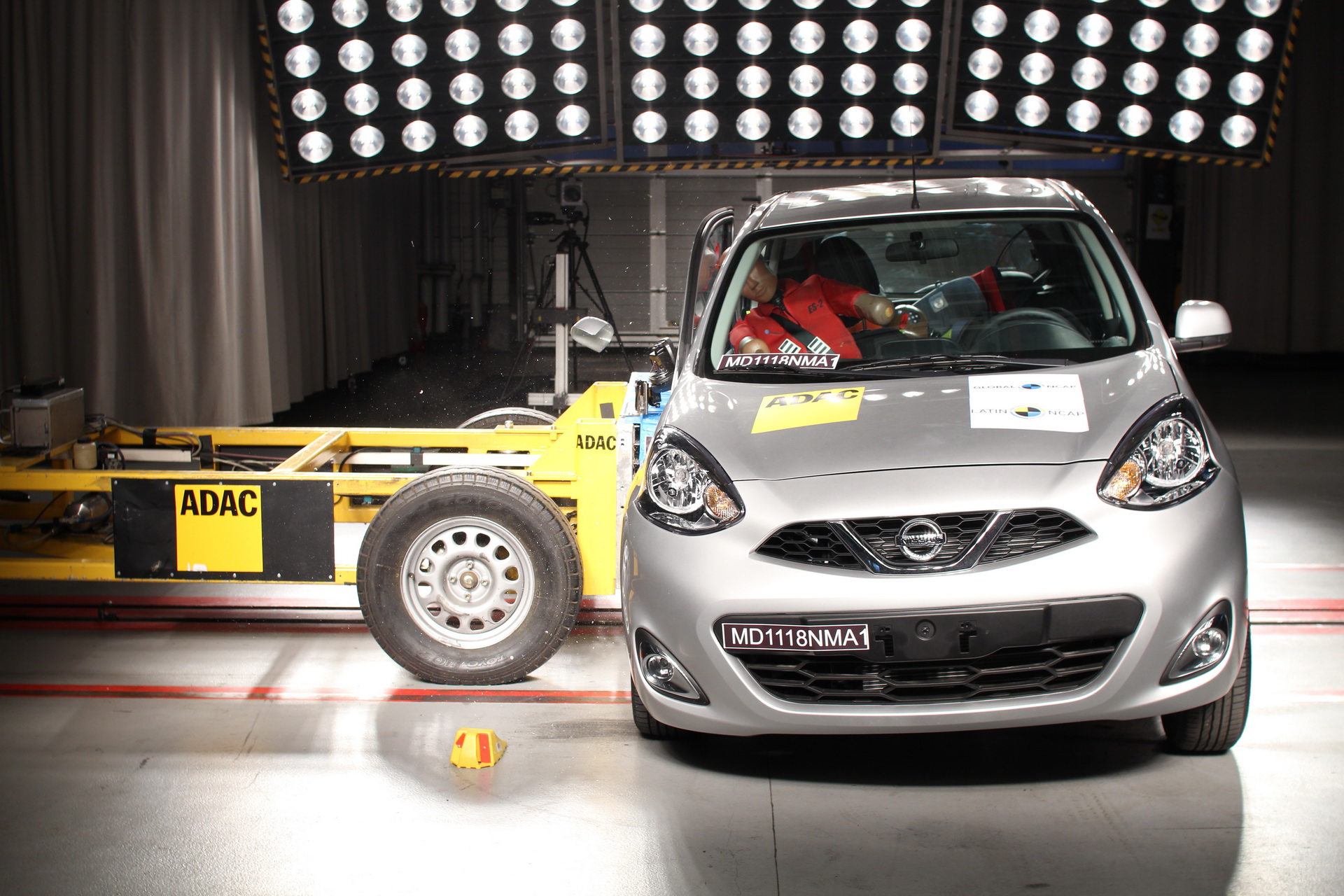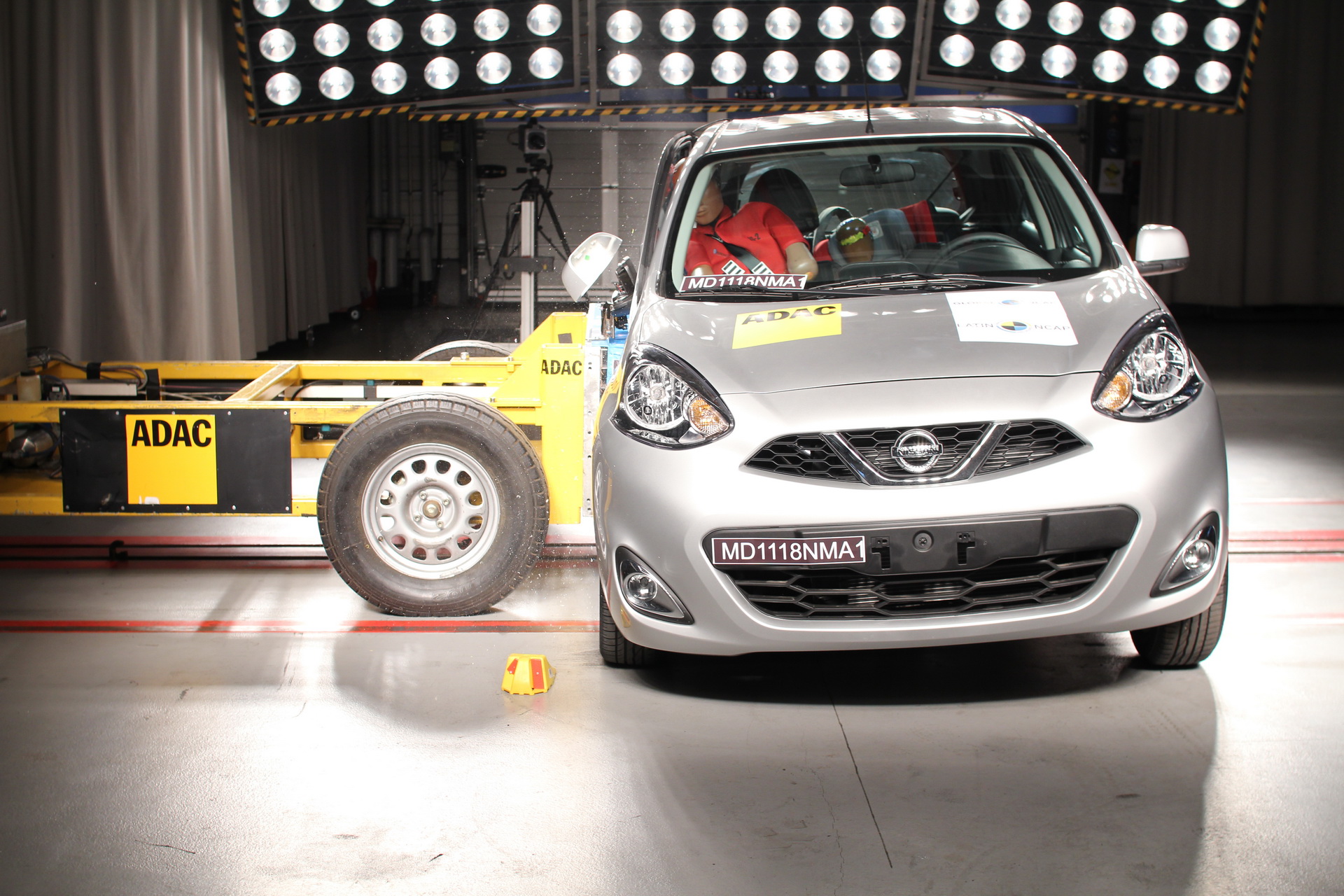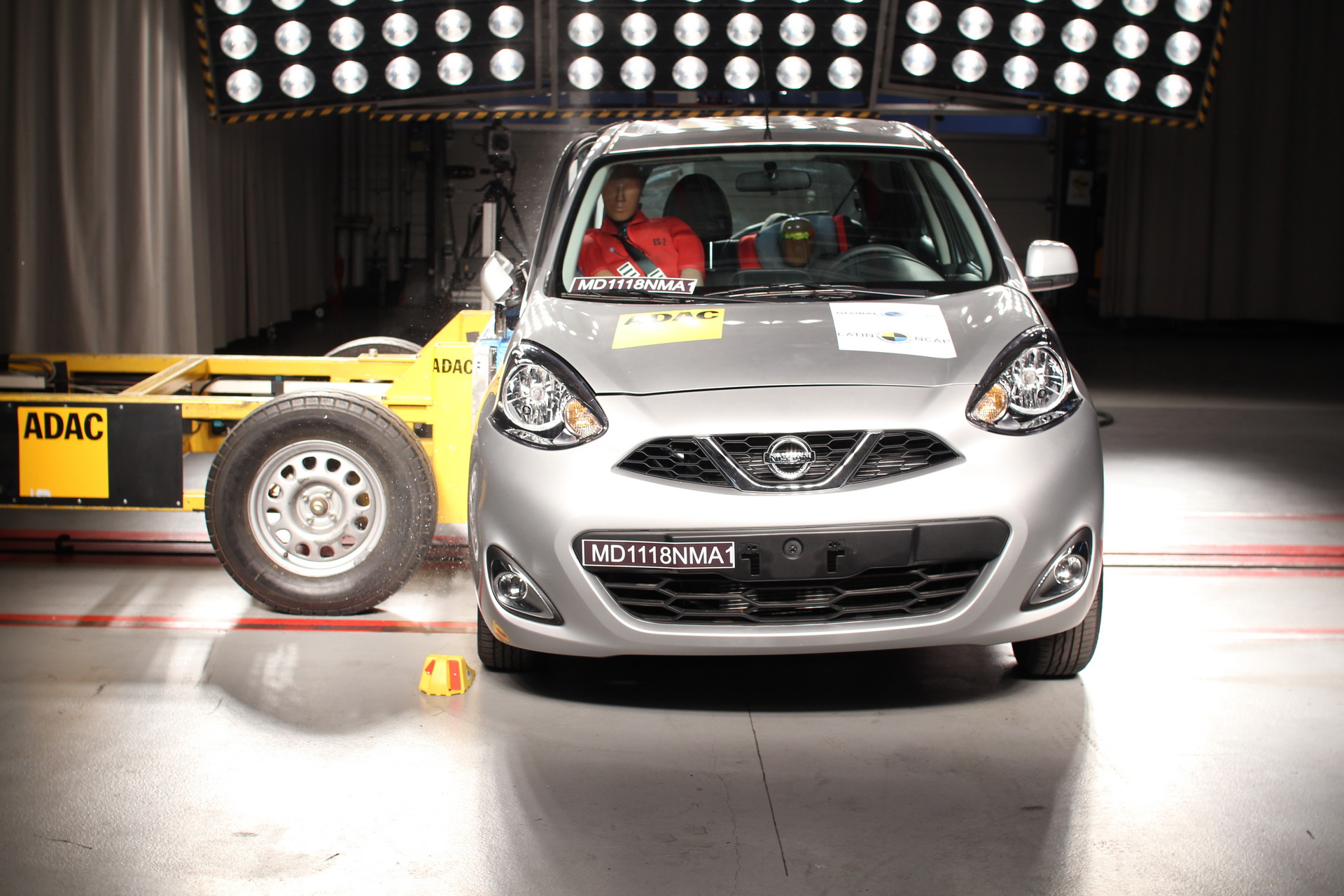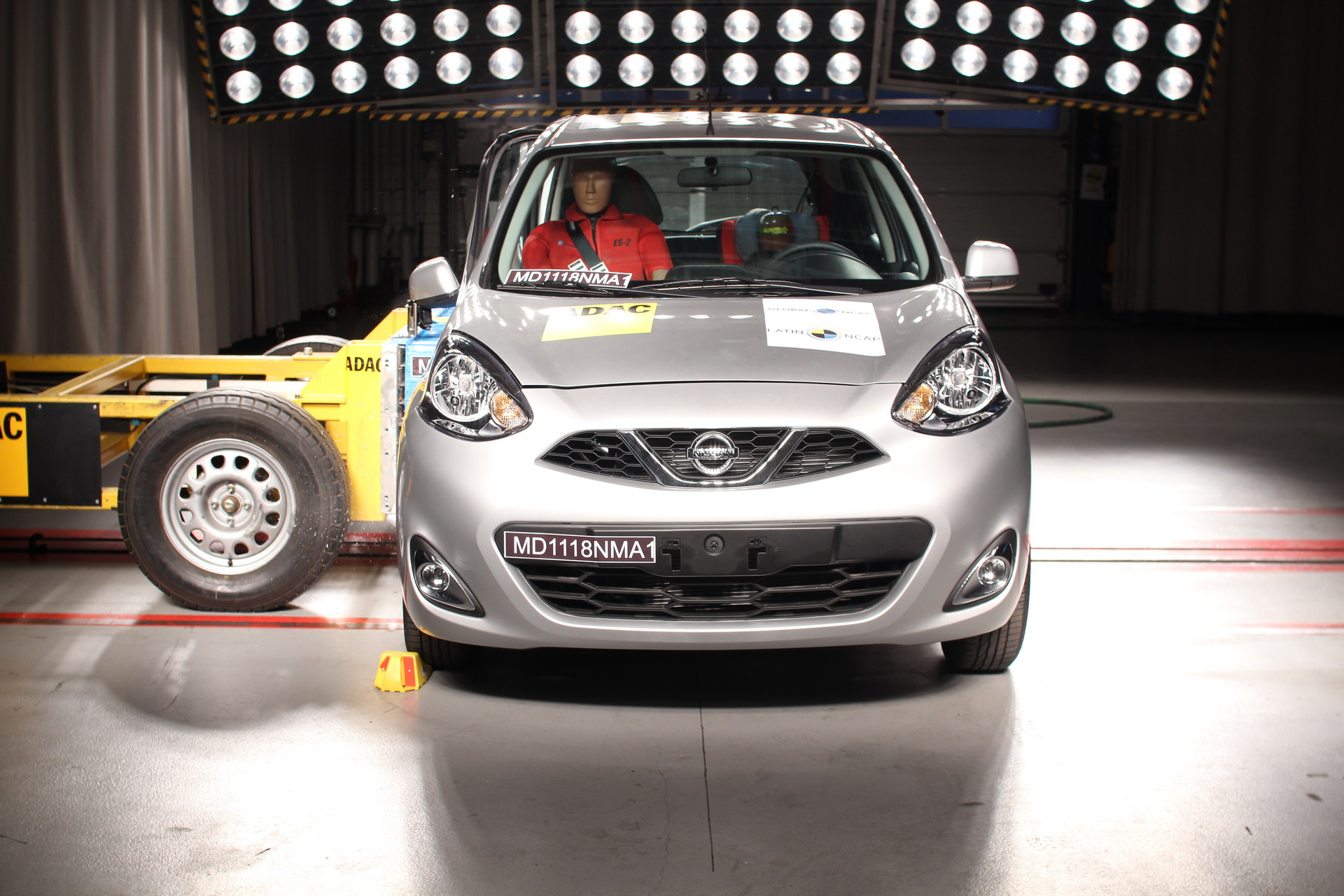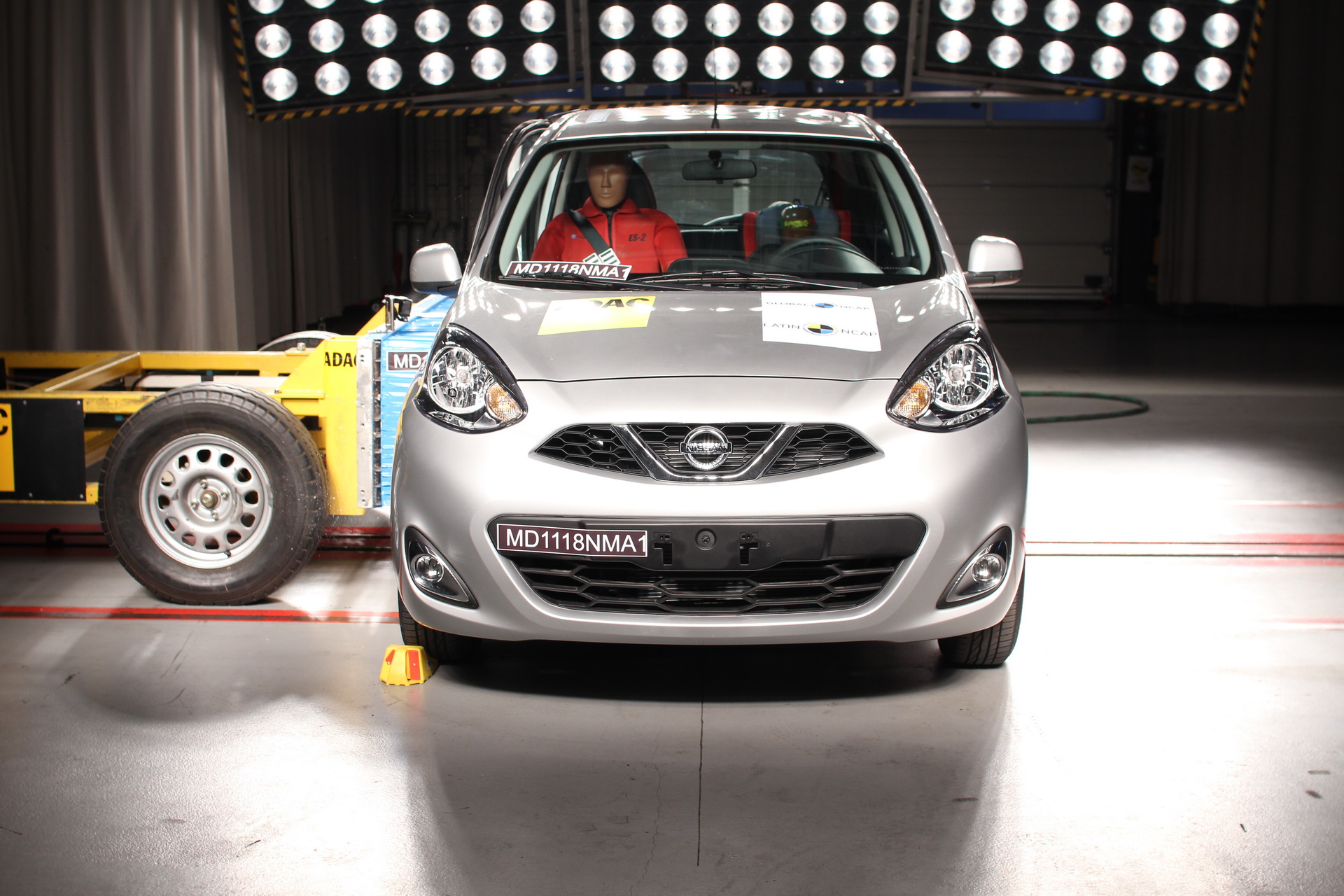The latest vehicles to have flopped in Latin NCAP’s safety tests are the Nissan March and Mazda2, both of them made and sold in South America.
Originally tested in 2015 and audited in 2016, when its Adult Occupant Protection dropped from four to three stars, the Nissan March (Micra) has now scored only one star, and two for Child Safety.
According to the data released by Latin NCAP, “the frontal chest compression was high and the car showed unstable bodyshell performance”. Also, the Nissan March didn’t perform well in the side impact either, and the lack of standard seatbelt reminders and ISOFIX anchorages led to the poor score, too.
Also tested alongside the Japanese model made in Mexico and Brazil was the Mazda2. This version of the car is put together in Mexico and did a bit better than the Nissan March, scoring only two stars for Adult Occupant Protection and three for Child Occupant Protection.
Also Read: Ford Ka Fails Latin NCAP’s Tests, Scores 0 Stars For Adult Occupant Protection
The subcompact hatchback from Mazda was said to offer “good protection for the frontal and side impact for the adults in the crash tests”. However, despite offering seatbelt reminders (SBR) for both the front and rear seats, these don’t meet the Latin NCAP requirements.
Even so, the automotive safety specialists for South America and the Caribbean estimate that by improving the SBR and adding Electronic Stability Control (ESC), the Mazda2’s rating could improve, so the car is expected to be updated soon.
“Governments should encourage and create incentives to cars with active safety technologies like ESC and Autonomous Emergency Braking systems in order to shift the safety levels of new cars sold in the region and to line up with global requirements”, said Latin NCAP’s Secretary General, Alejandro Furas.



